In the FRONT-LINE
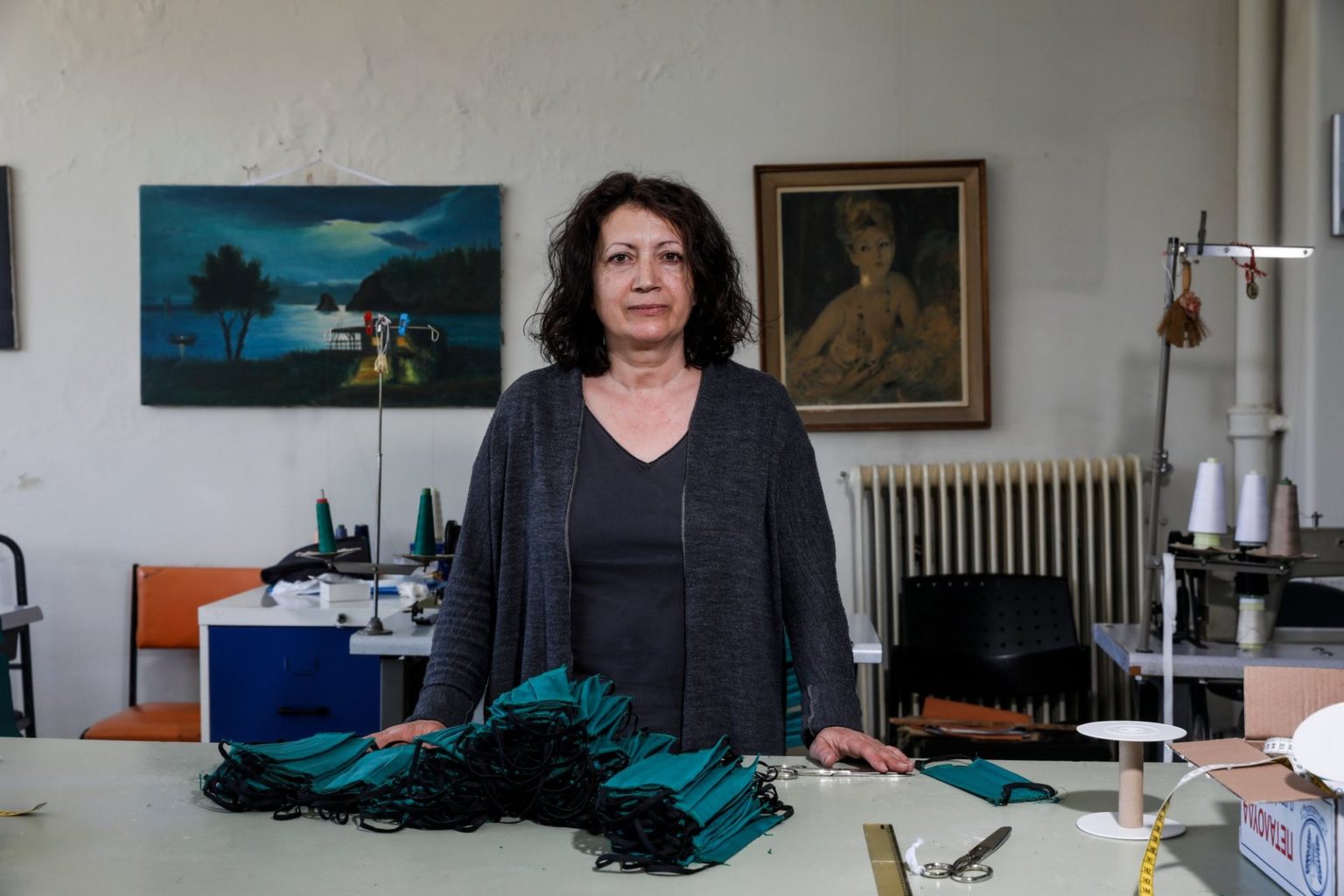
“I may be just a cog in the wheel, but I assure you this wheel needs all its cogs to start moving”
Panagiota Tzouanopoulou
Seamstress/ Hospital “Sotiria”
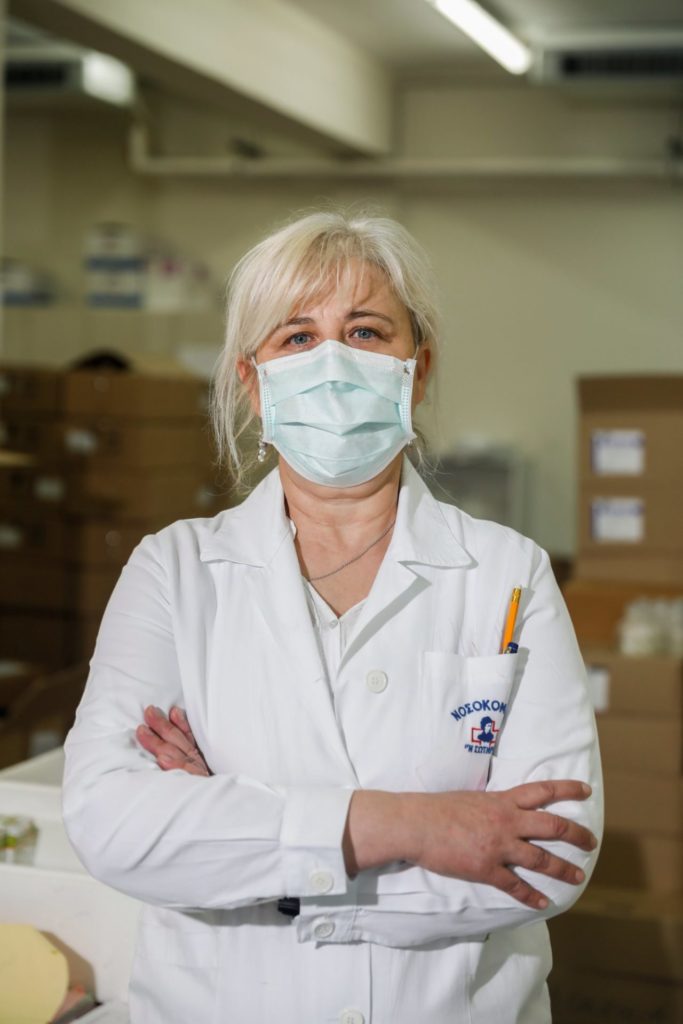
“The quarantine made us appreciate what's important in life”
Vasiliki Siozou
Pharmaceutical preparator/ Hospital “Sotiria”
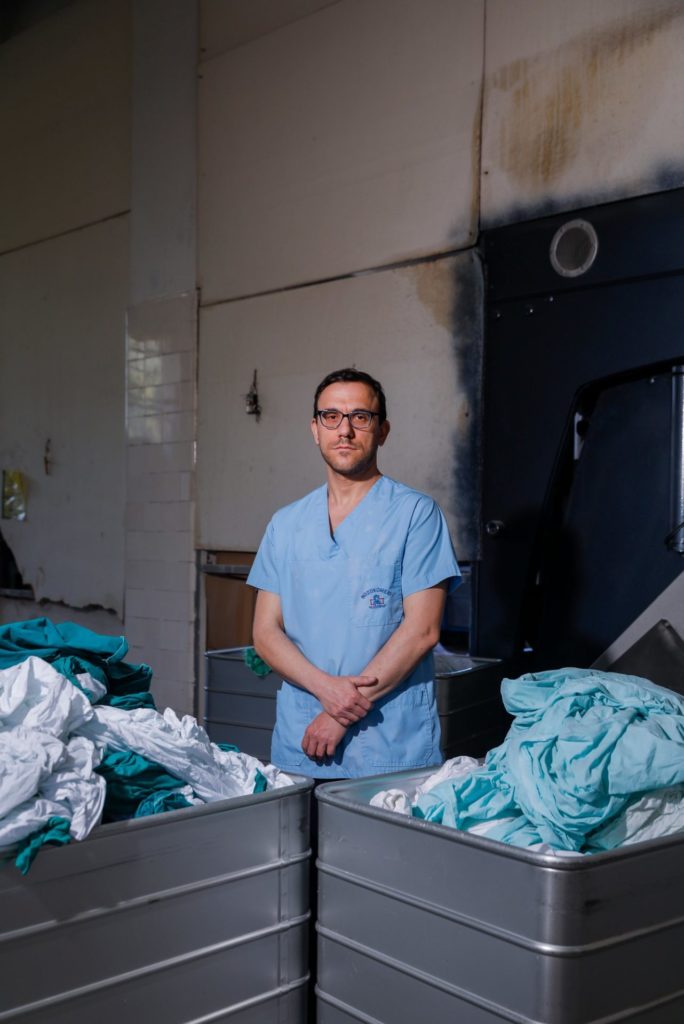
“I make sure that patients’ sheets are clean and nicely ironed. I want patients to have a pleasant sleep”
Christos Pierrakos
Linen assistant/ Hospital “Sotiria”
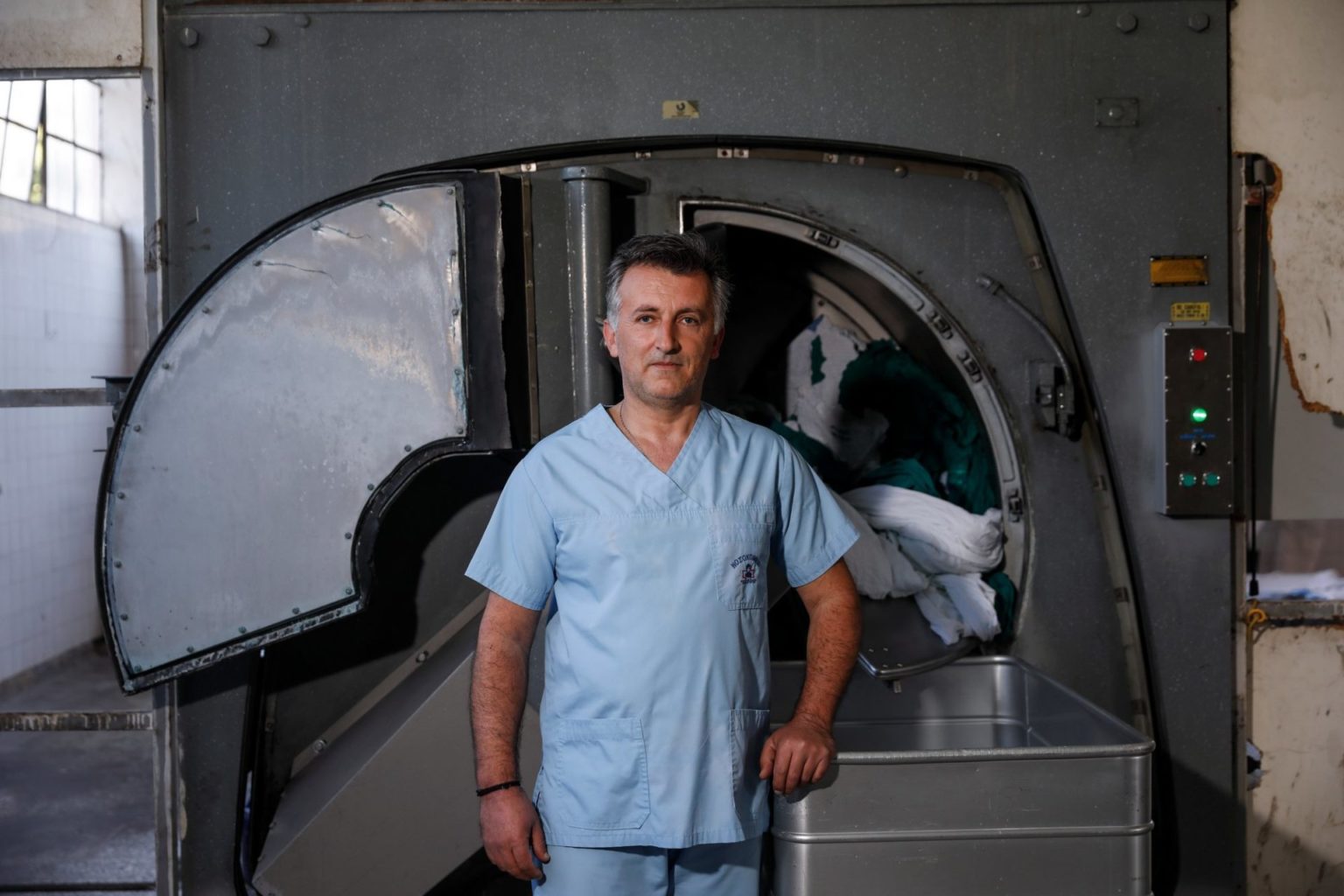
“I return home with a sense of satisfaction for contributing to the hospital and helping other people”
Efthymios Koukouvaras
Linen assistant/ Hospital “Sotiria”
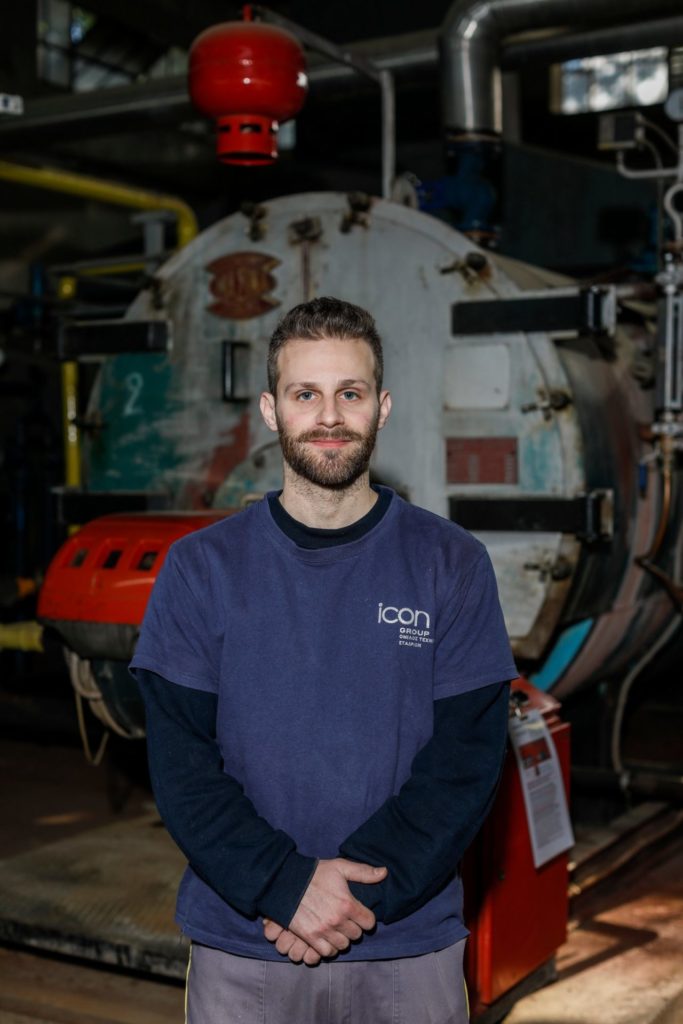
“Nothing has changed in the way I work. I continue work and go to my job everyday”
Fotis Kalfountzos, Mechanical equipment technician/ Hospital “Sotiria”
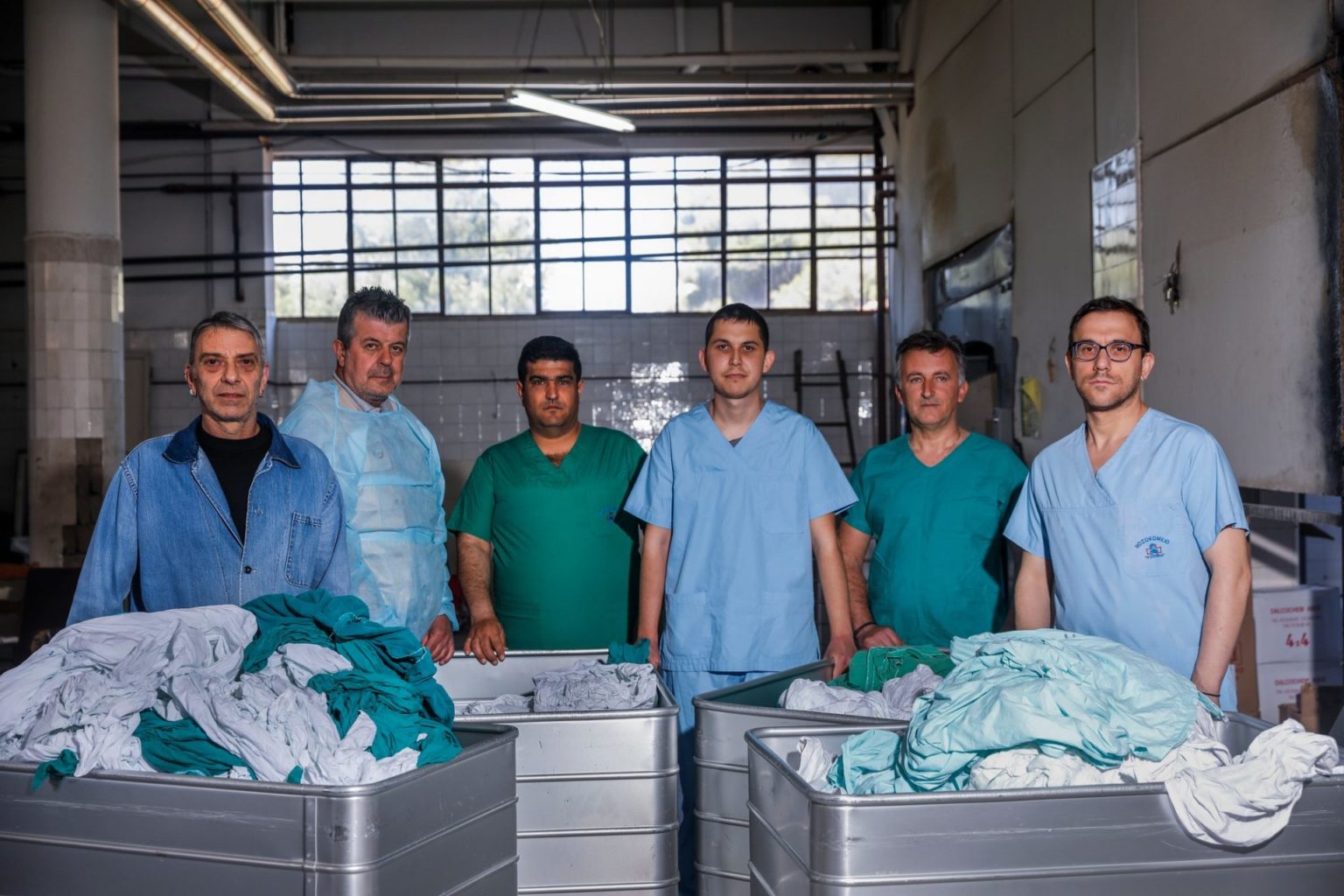
“The patient is our priority, always”
Linen assistants at the Hospital “Sotiria”
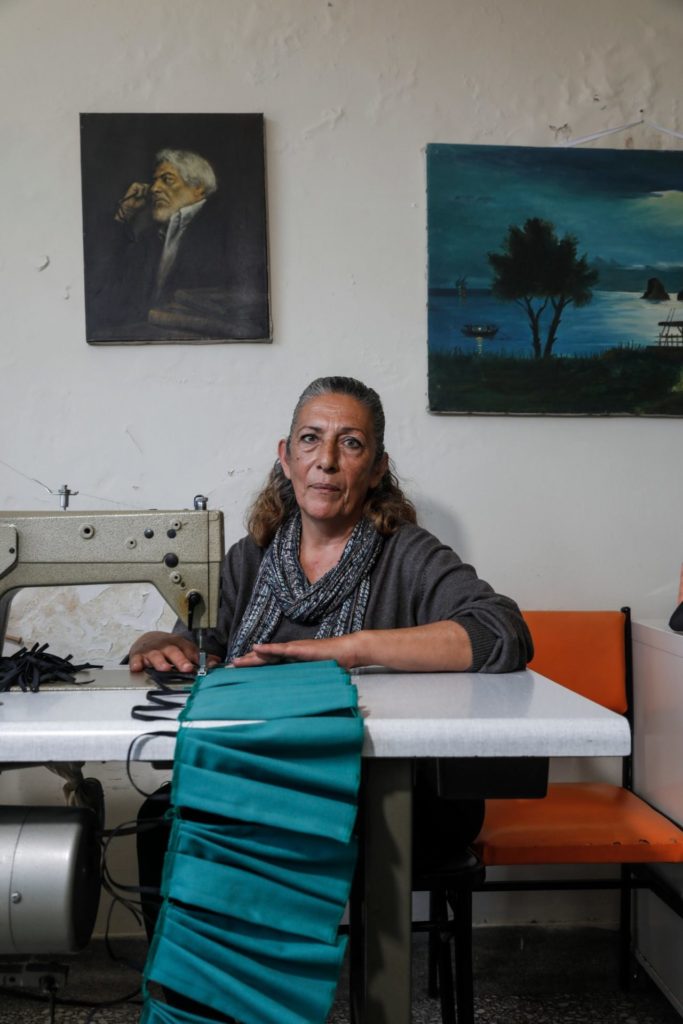
“This period, I am sewing masks. I think it is a way of offering to others”
Evangelia Diamantidou.
Seamstress/ Hospital “Sotiria”
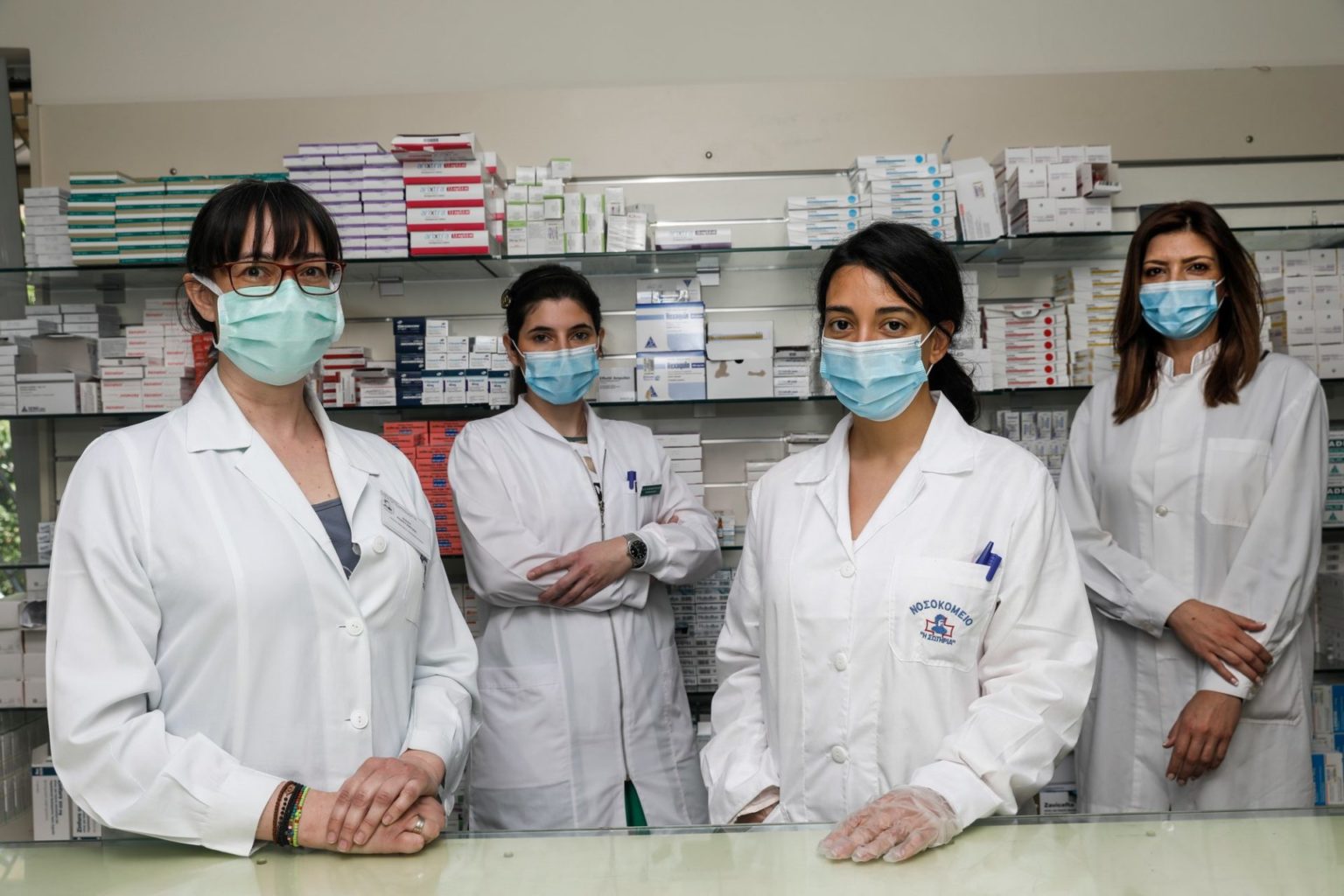
“Now we know. We are ready for tomorrow”
Hospital staff – pharmacists
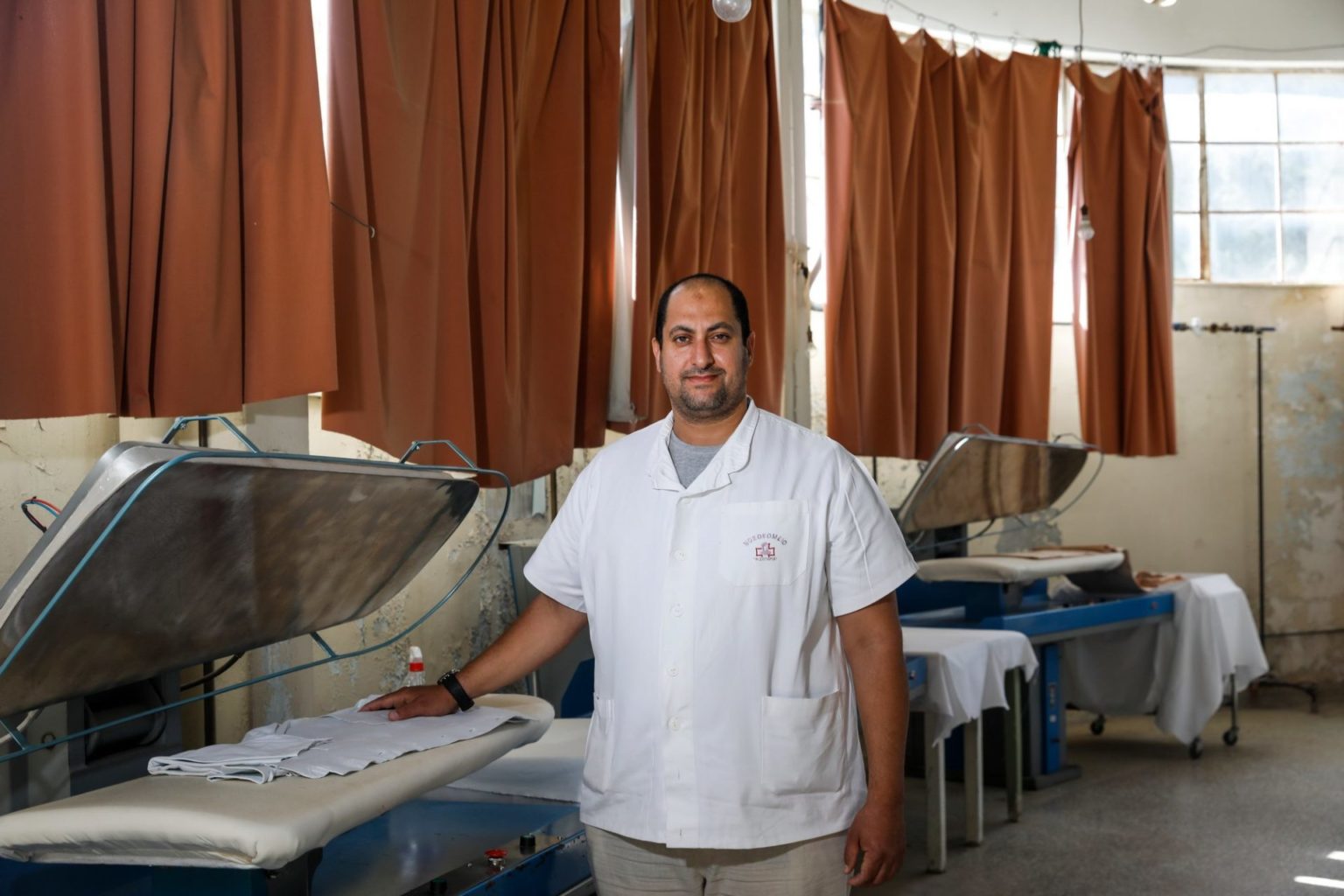
“I love keeping patients, nurses and doctors clean and ironed. It gives me joy”
AHMED ABDELNABI
Ironer / Hospital “Sotiria”
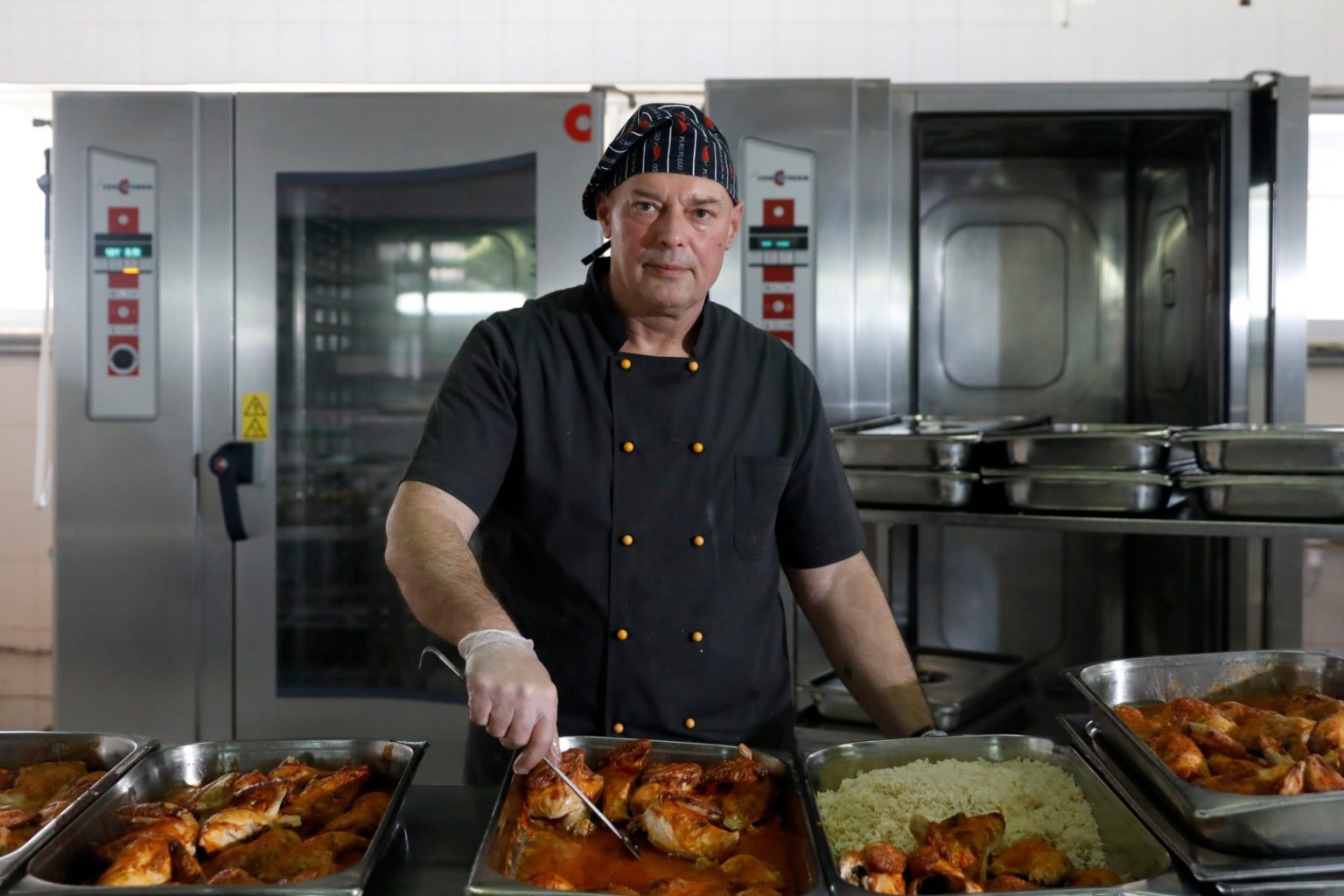
“Hospitals are not just about doctors; there's also us, cooks who heal hunger”
Myaris Theofanis
Cook / Hospital “Sotiria”
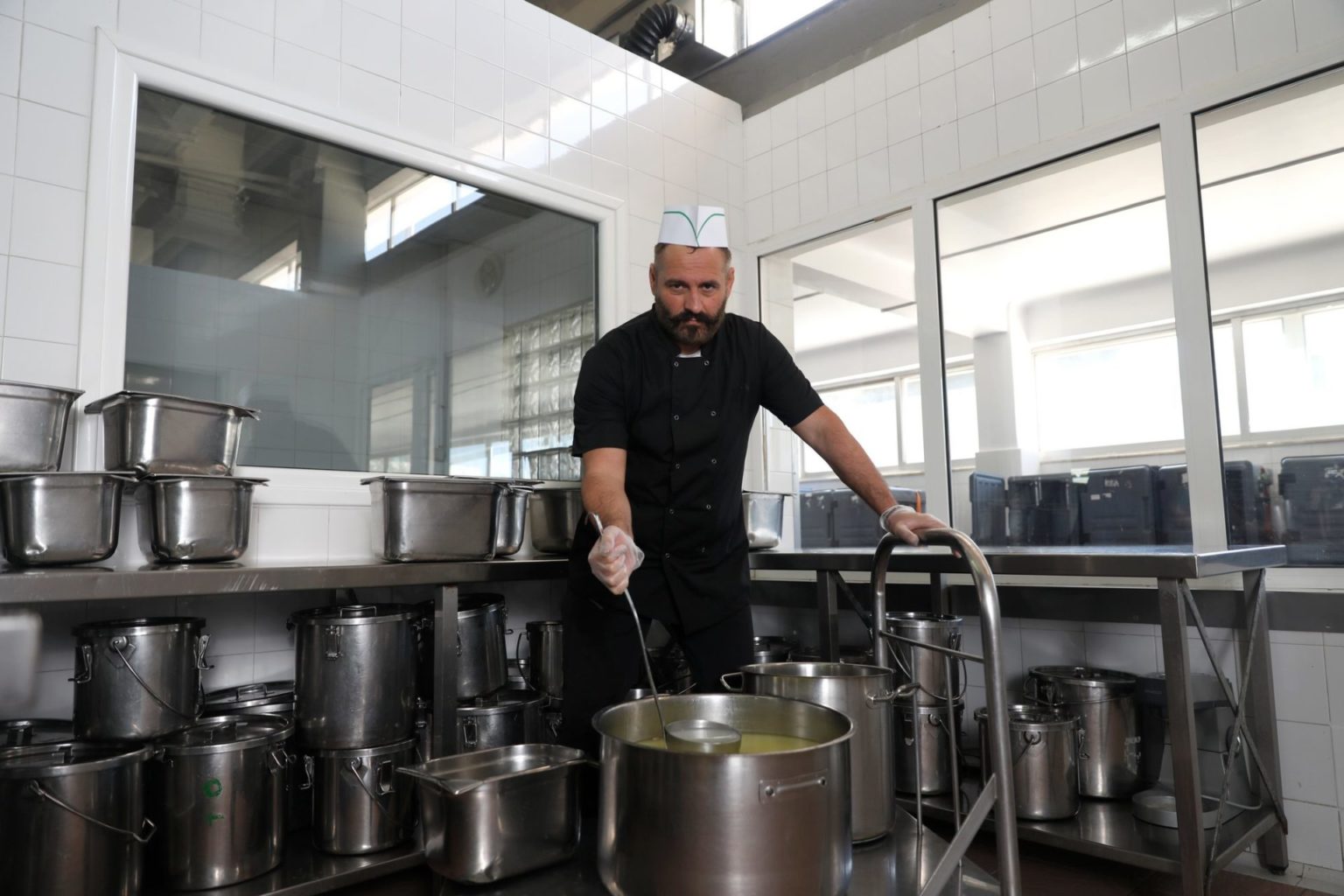
“We are not an impersonal catering. You can win a battle even with food”
Kollias Christos
Cook / Hospital “Sotiria”
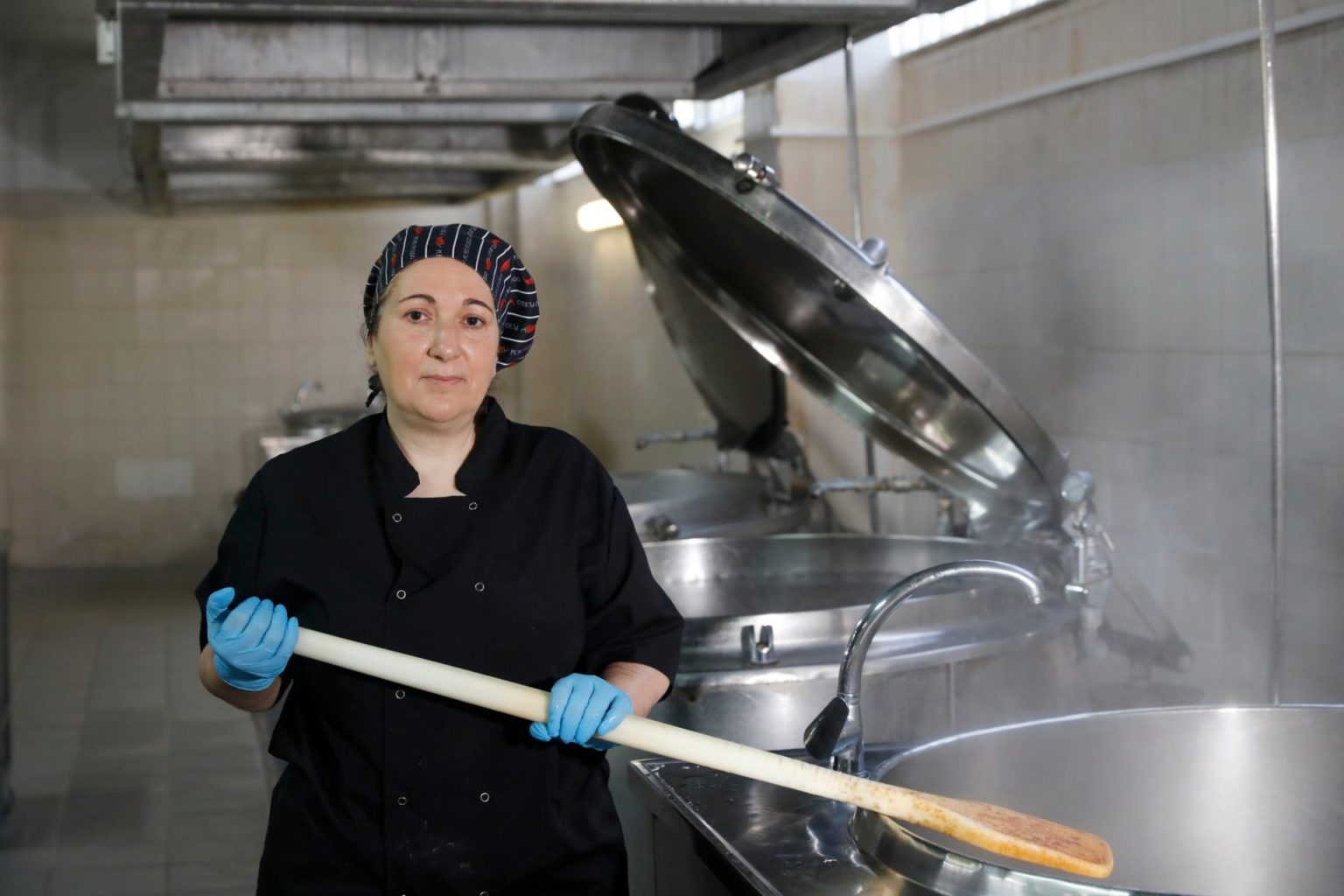
“We try to cook dishes that remind them of home”
Gerasimou Maria
Head cook / Hospital “Sotiria”
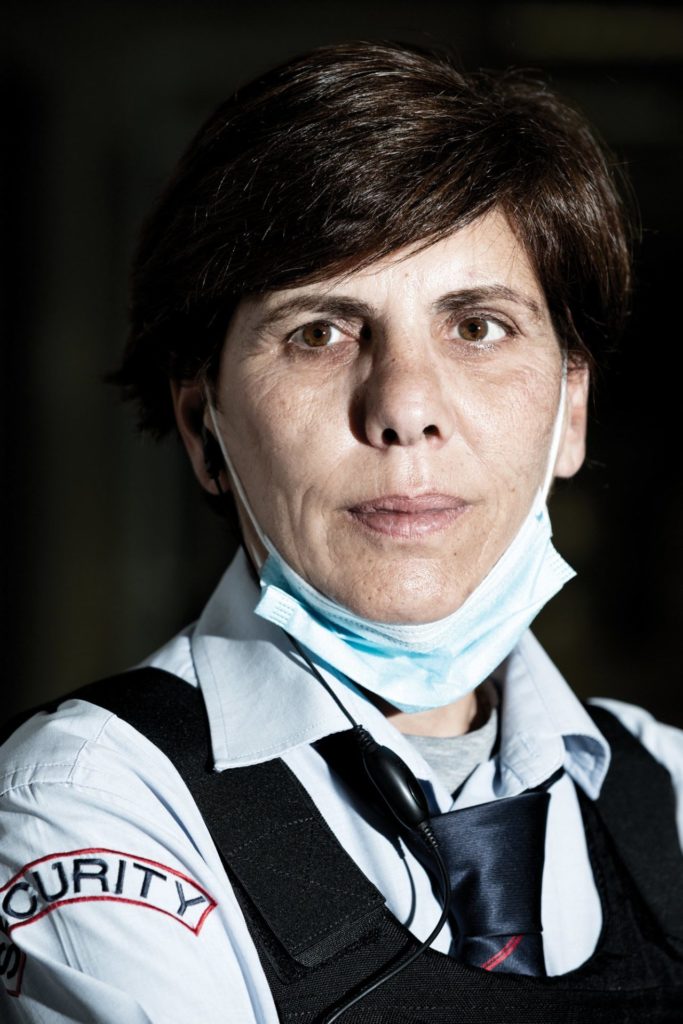
“I have worked in hospitals for 15 years and this is by far the hardest situation I have ever dealt with”
Stamatina Mylona, security staff at “Evangelismos” hospital
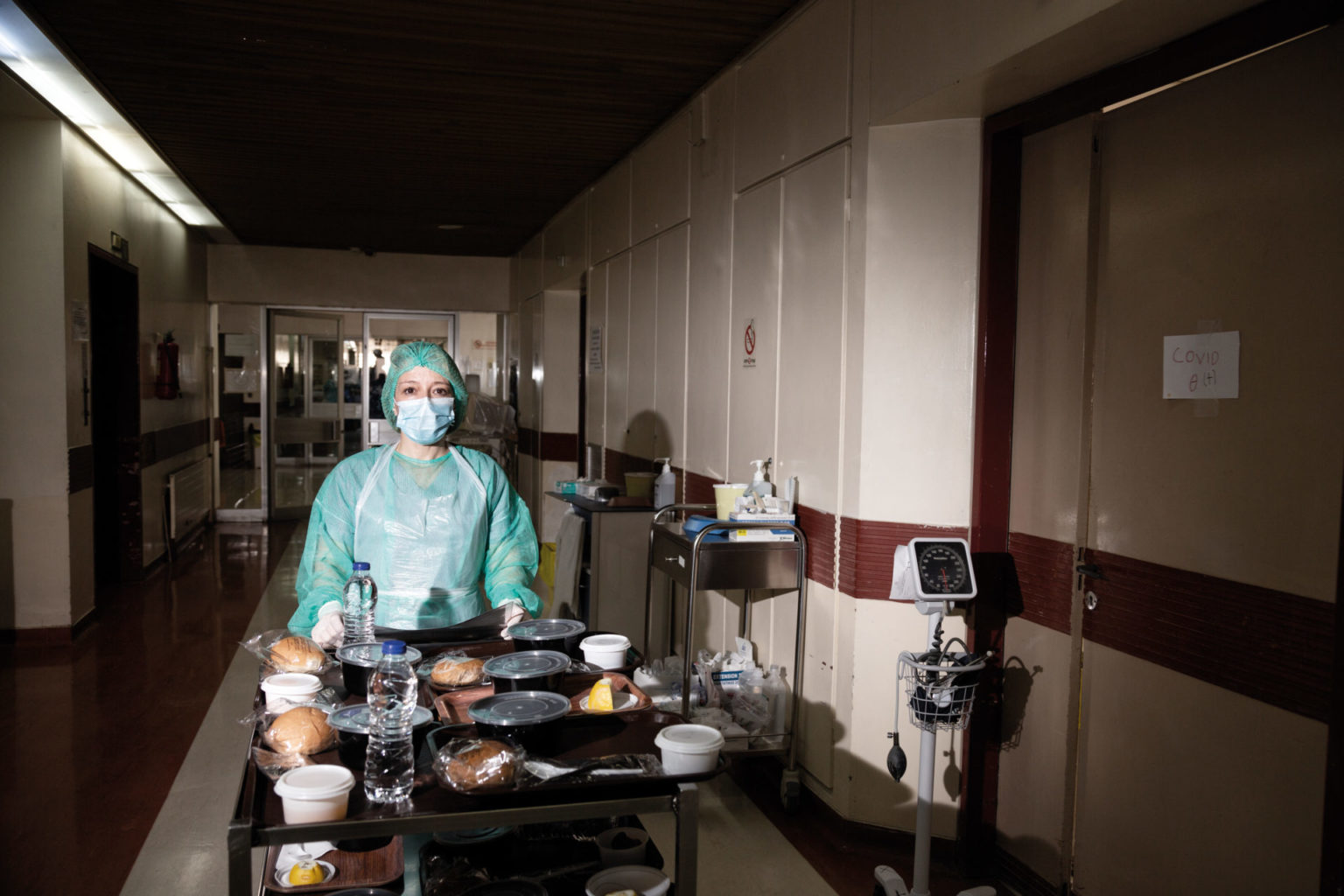
Niki Zamagia, food service worker, 49 y.o., 3rd Covid Clinic, Evangelismos Hospital
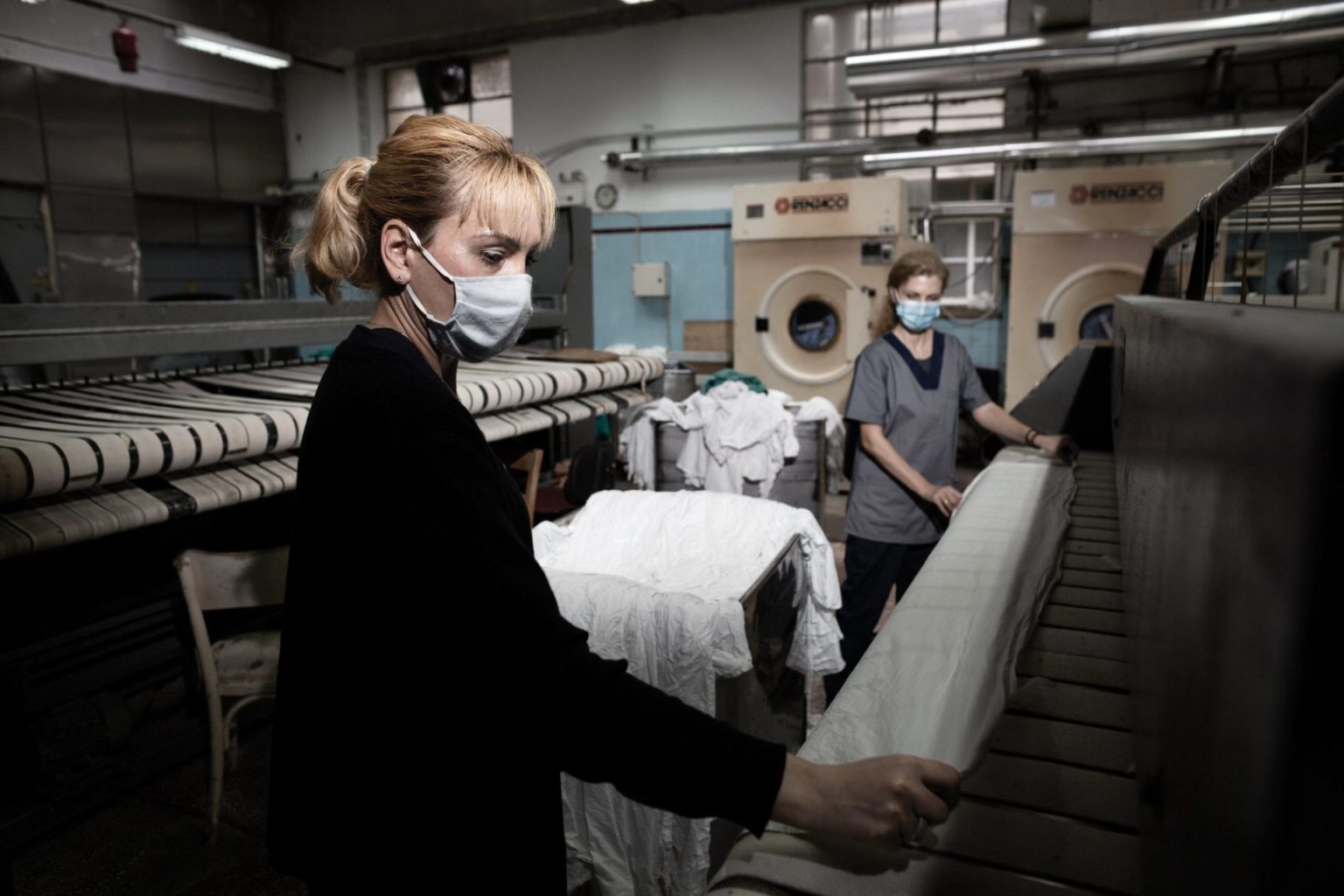
Hospital “Evangelismos” – Laundry
Anna Markou and Olga Sidiropoulou iron hospital sheets.
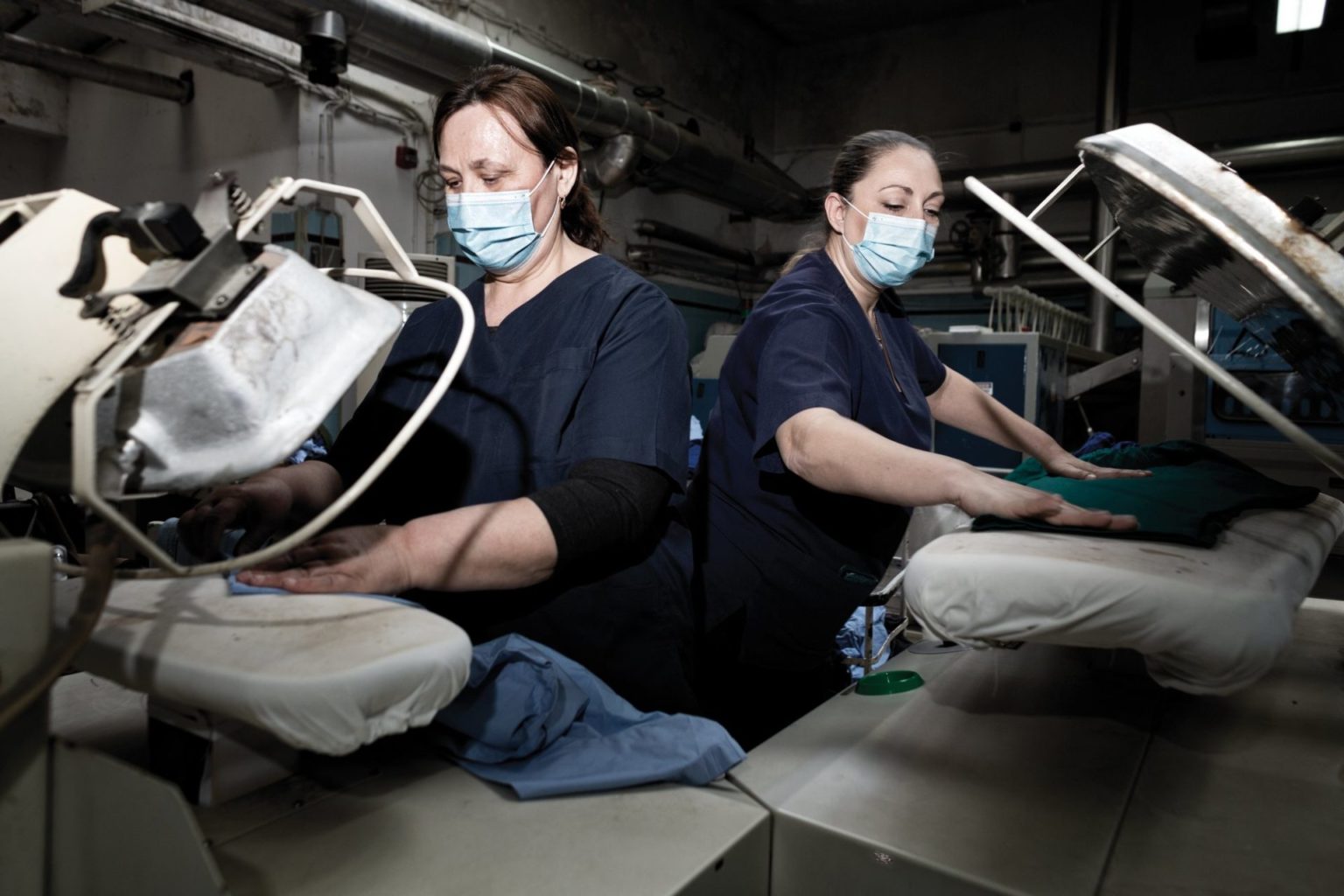
Hospital “Evangelismos” – Laundry
Georgia Zacharou, Svetlana Berezoyska
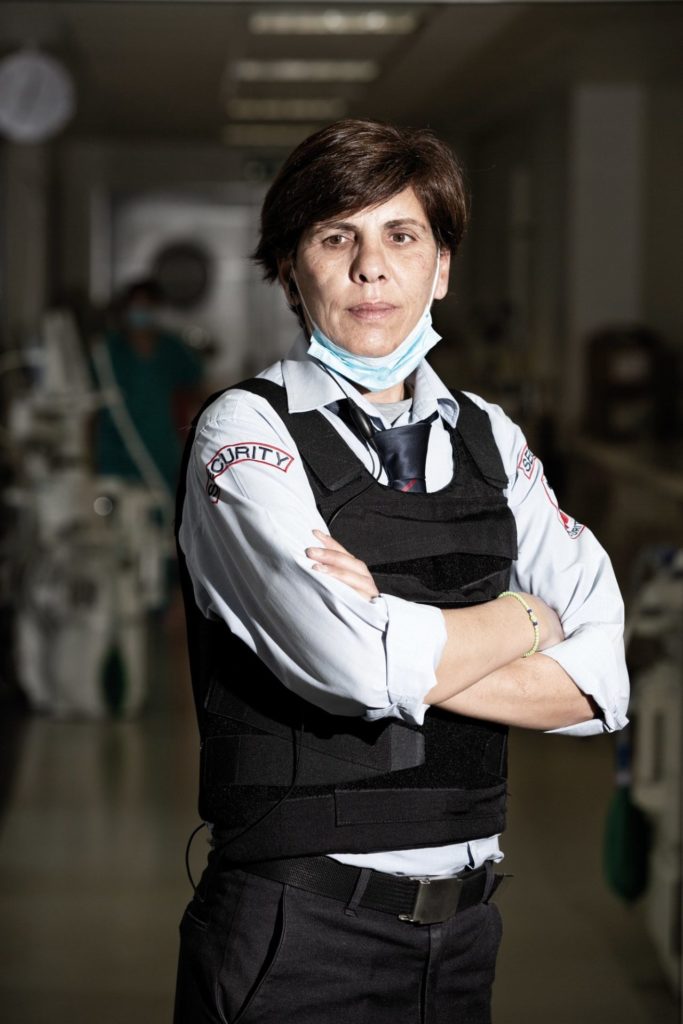
Stamatina Mylona, security staff at “Evangelismos” hospital
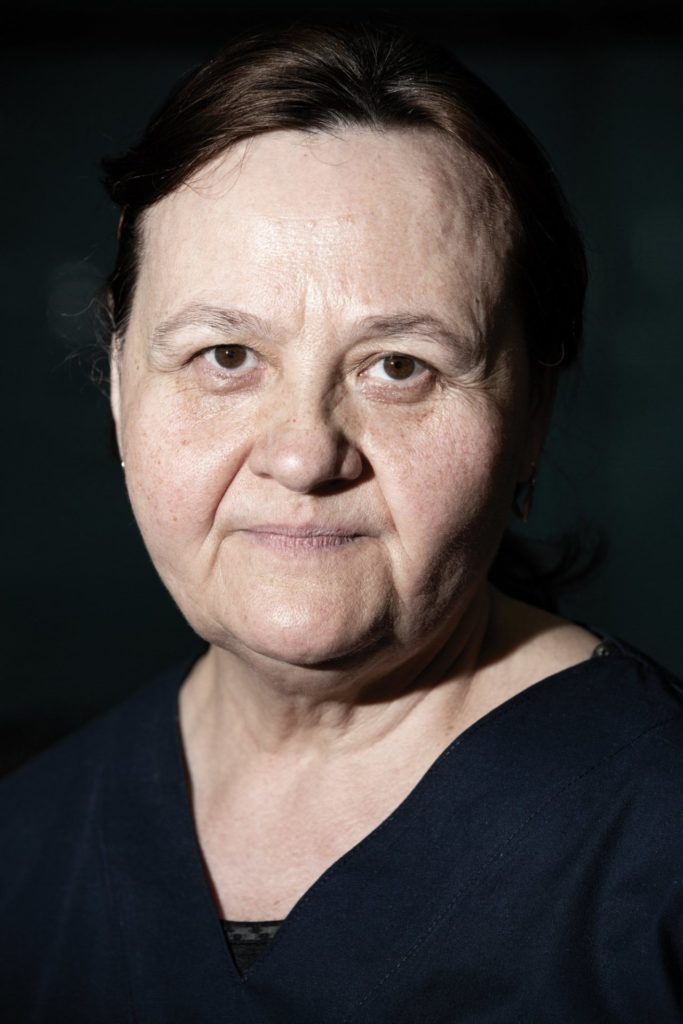
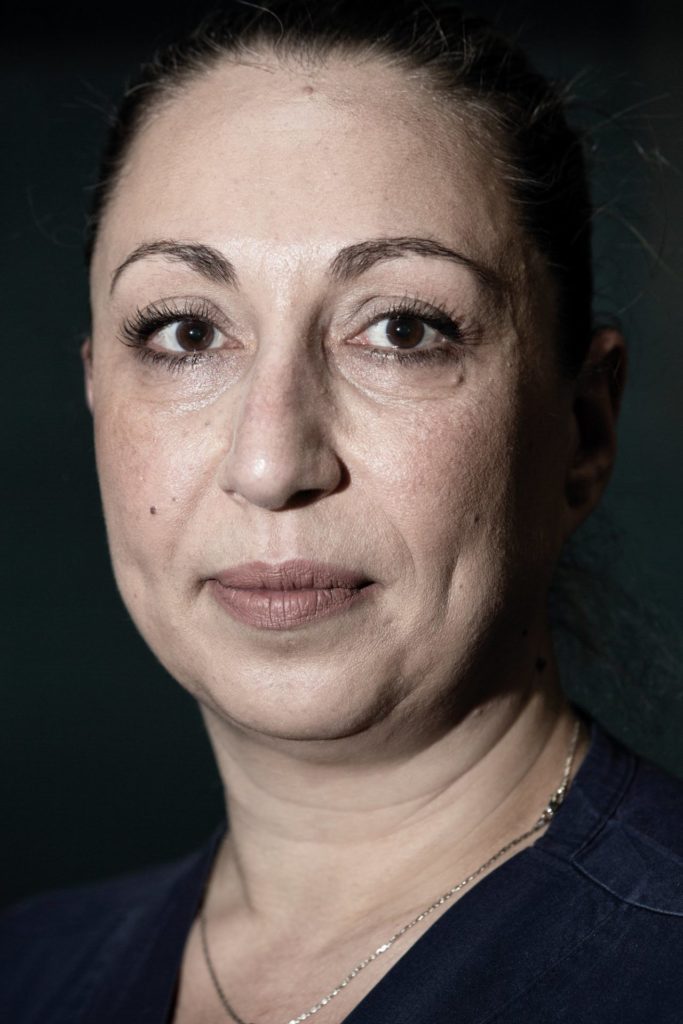
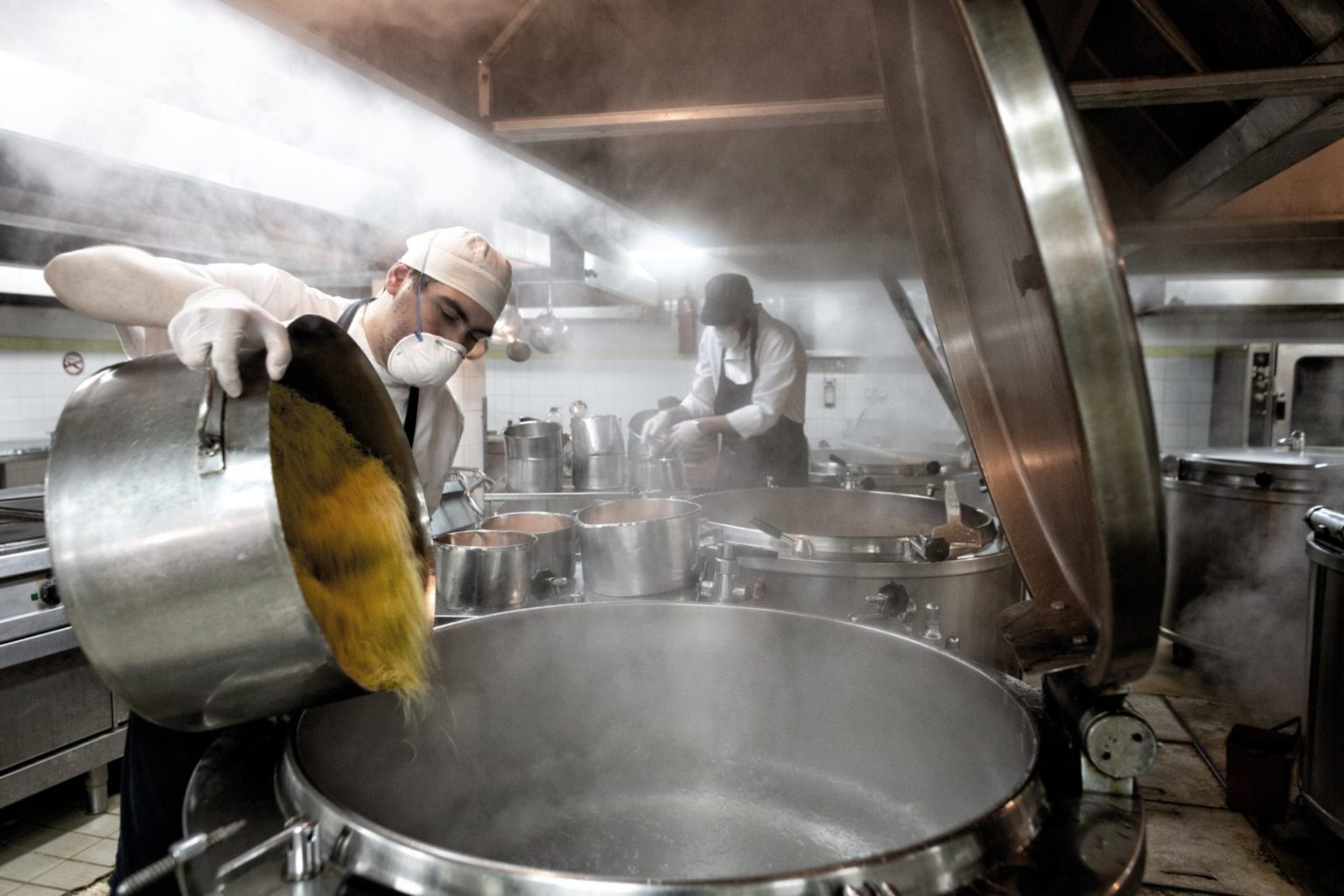
Hospital “Evangelismos” – Kitchen
Ioannis Arvanitis, Pavlos Iordanidis
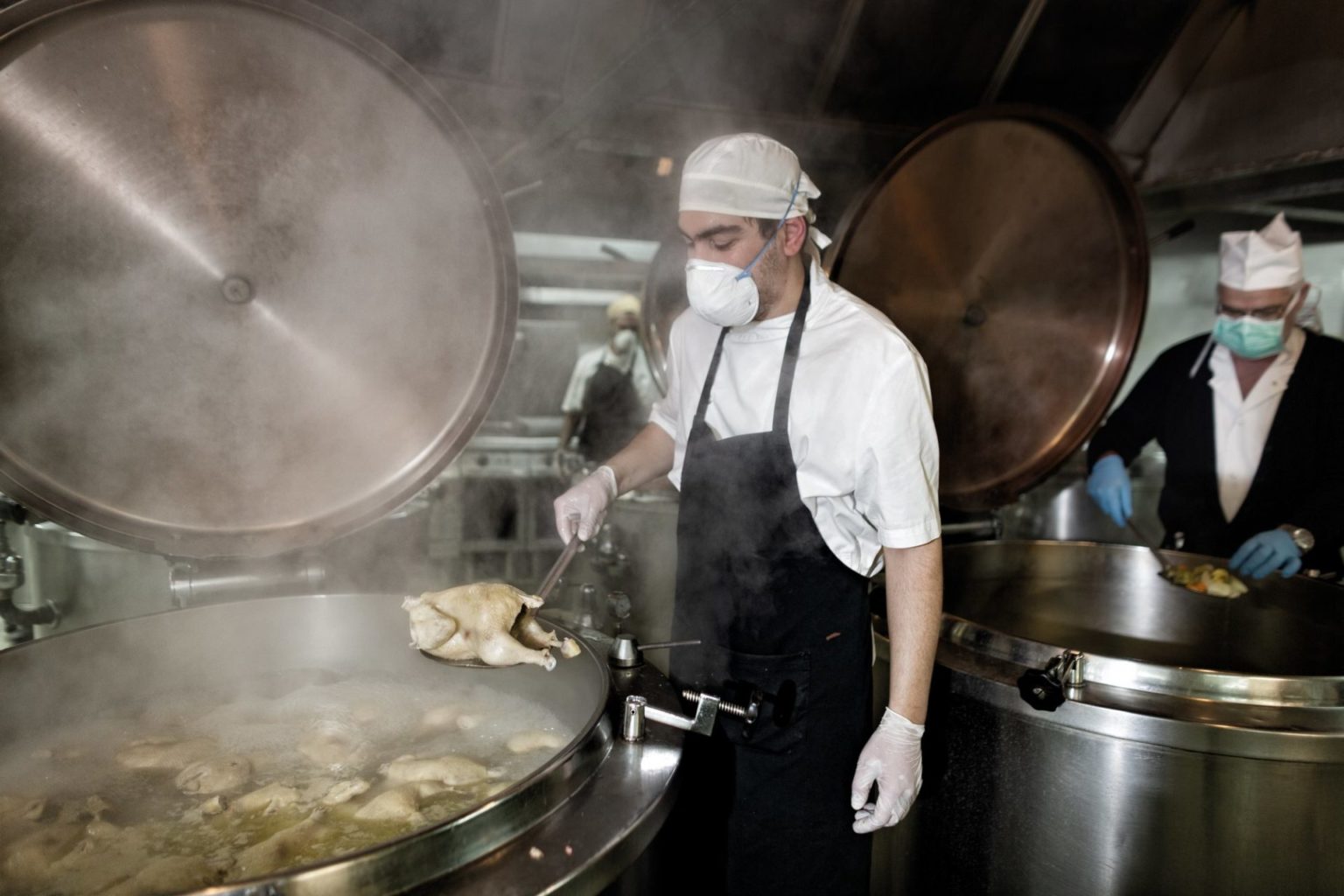
Hospital “Evangelismos” – Kitchen
Ioannis Arvanitis, Nikos Mastorakis, Pavlos Iordanidis
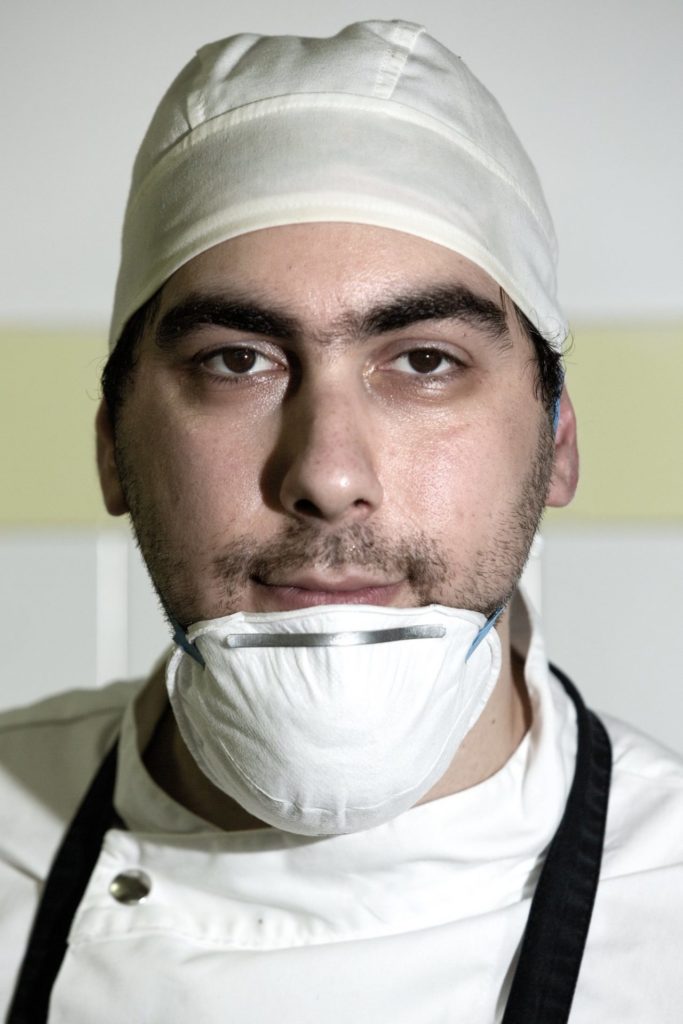
"Our leasing company pays us as employees every four months. We stay here and do our duty for the patients and society”
Hospital “Evangelismos” – Kitchen
Ioannis Arvanitis – cook
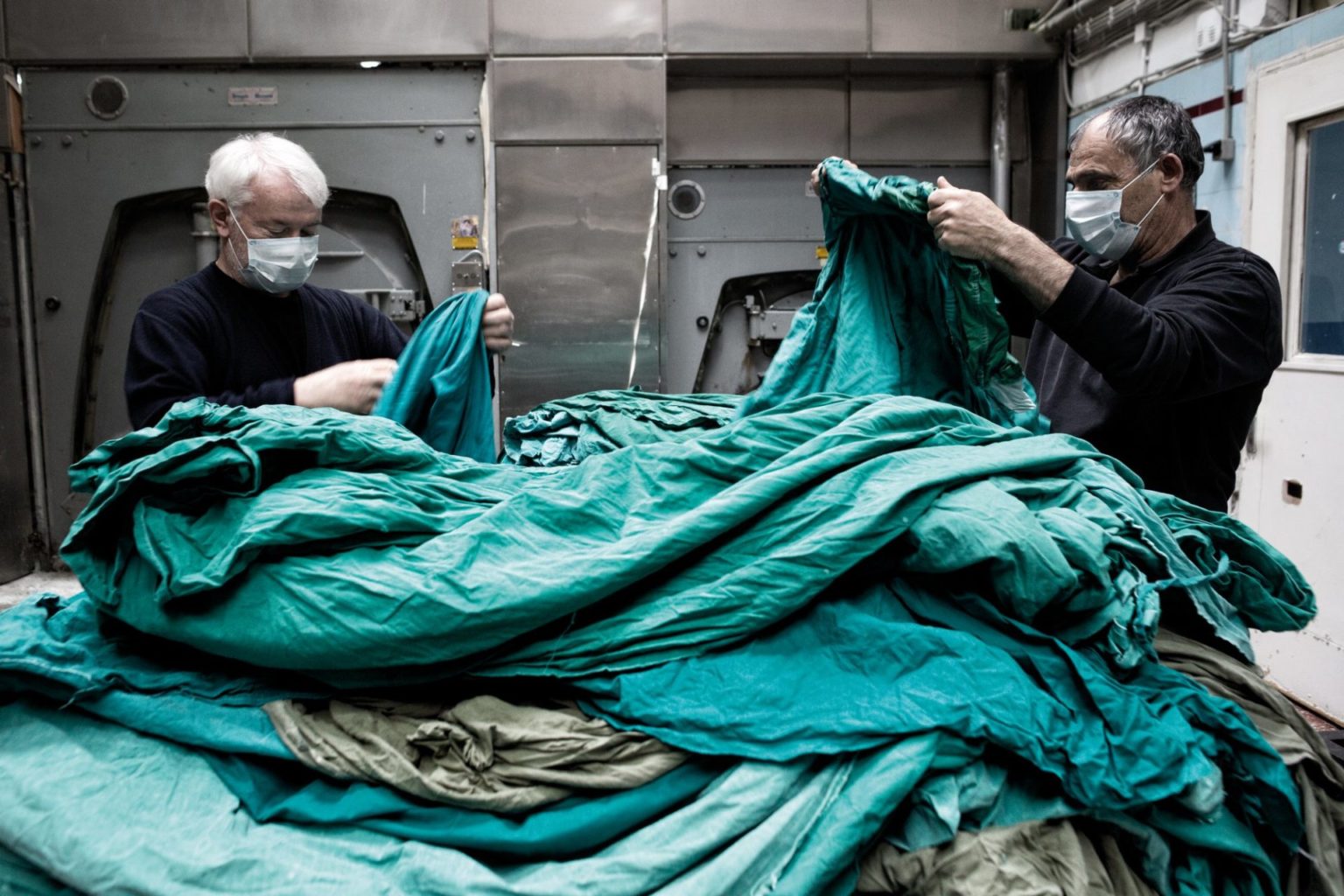
Hospital “Evangelismos” – Laundry
Christos Kontos and Hektor Balitas prepare the scrubs of doctors and nurses for ironing, right out of the autoclave.
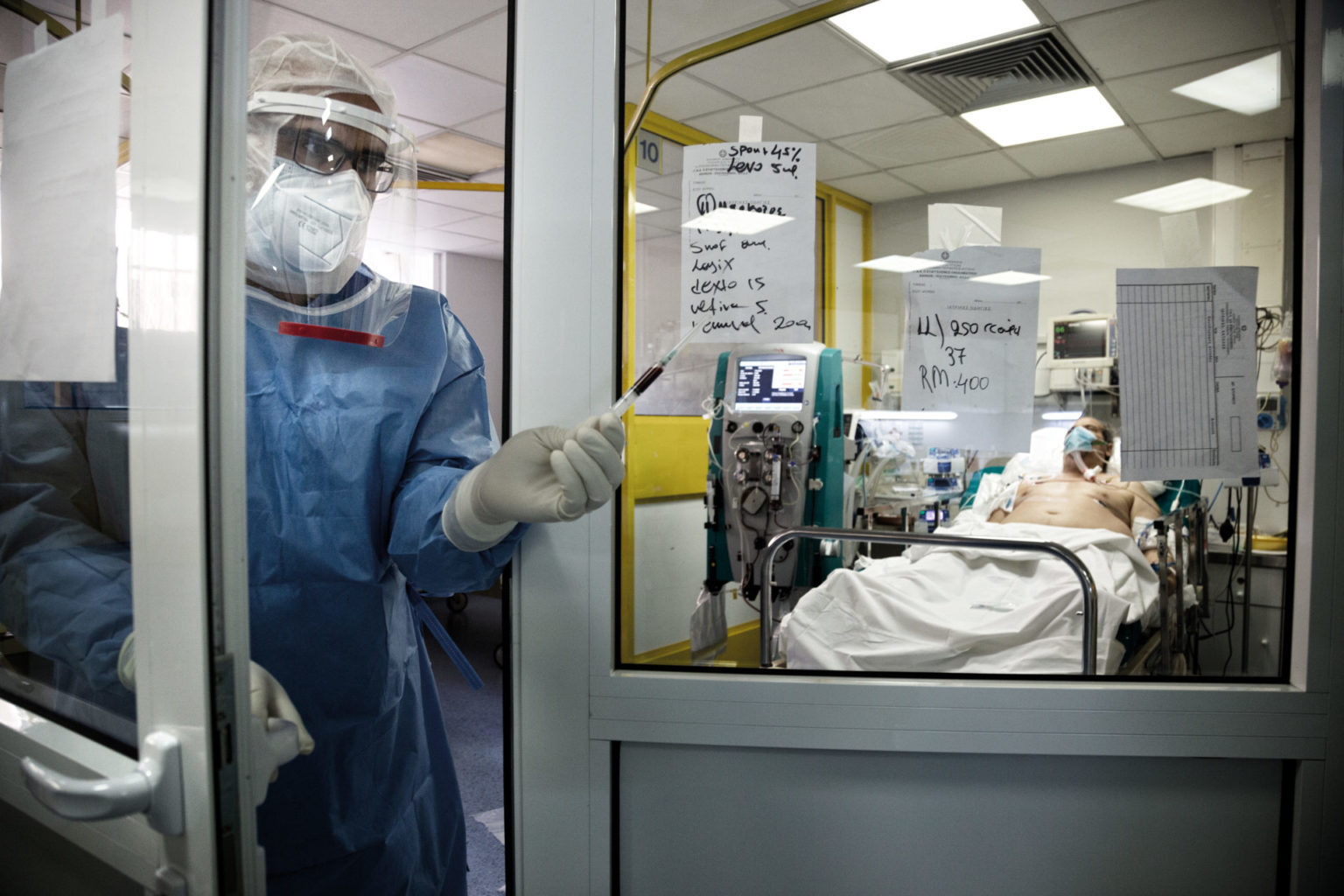
Covid-19 ICU – Evangelismos Hospital
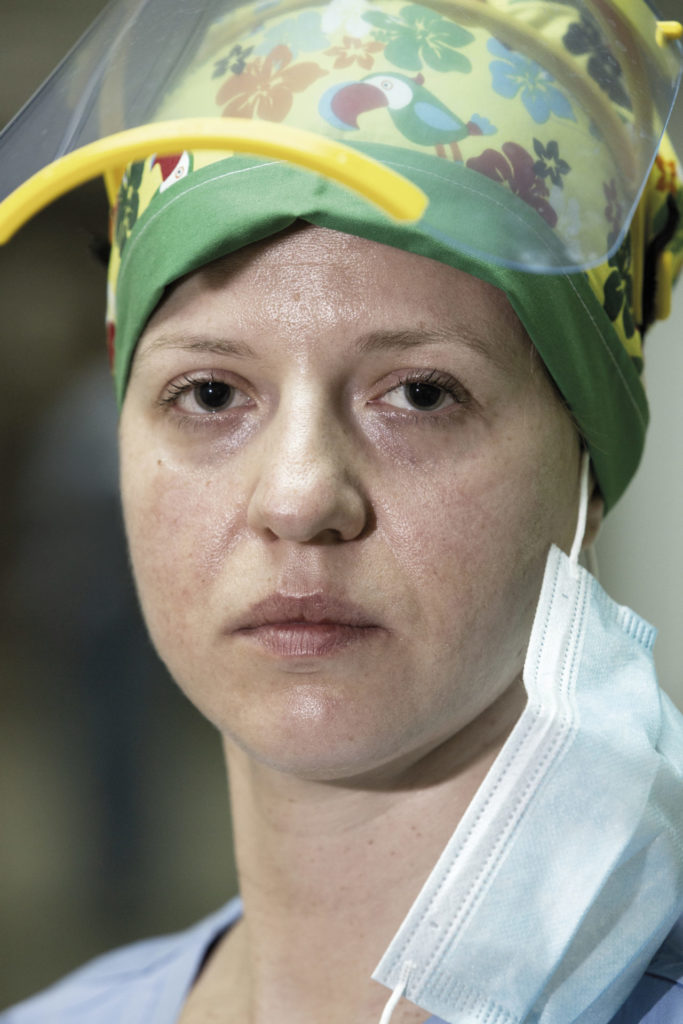
Chrysa Vasilaki, Covid ICU Nurse – Evangelismos Hospital
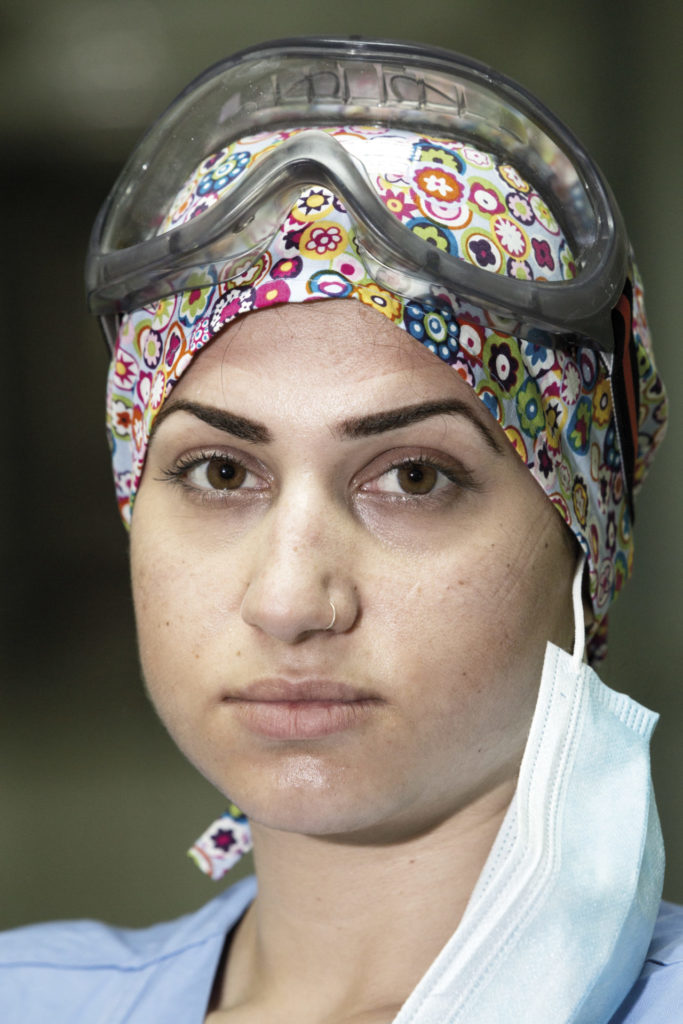
Konstantina Koufidi, Covid ICU – Evangelismos Hospital
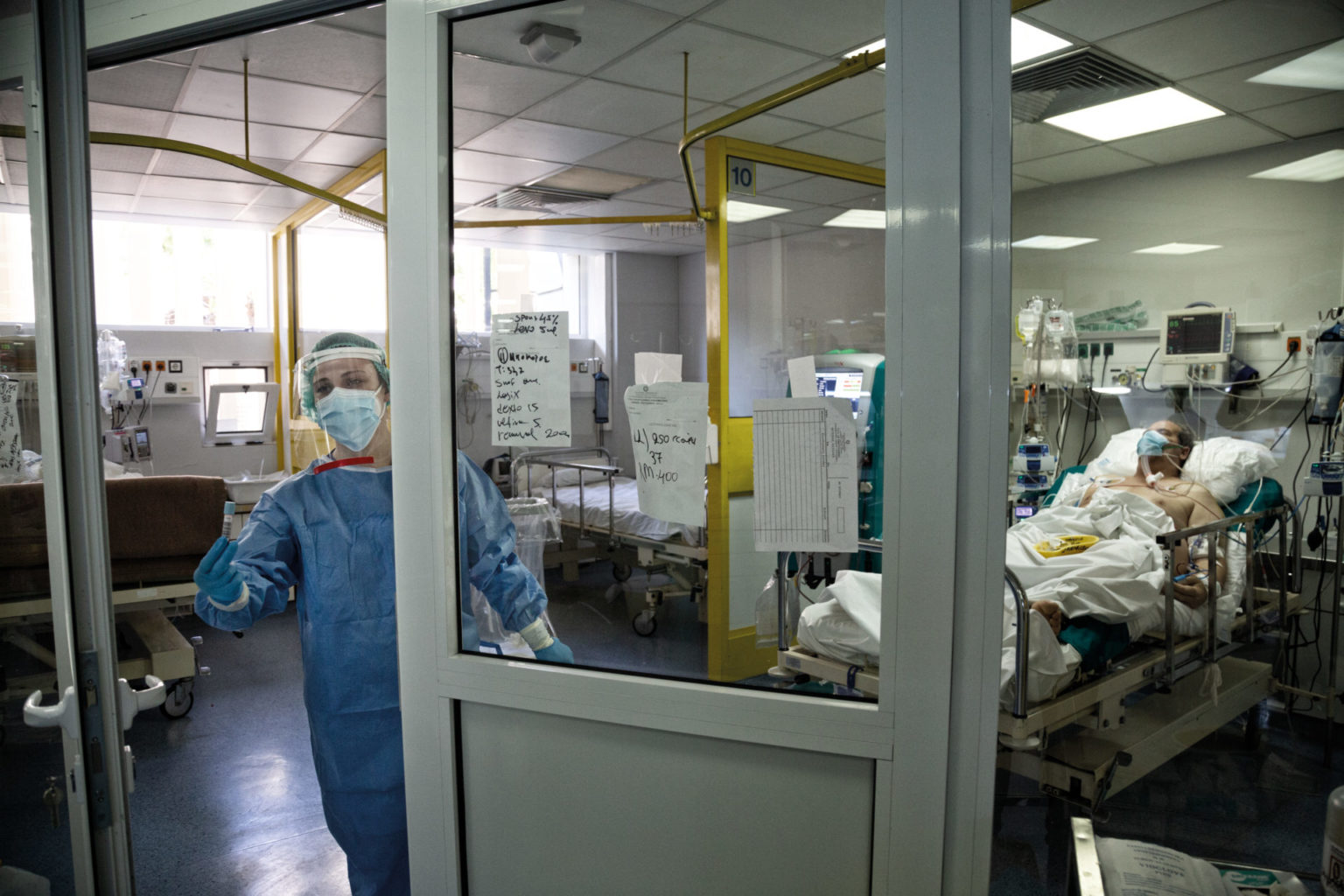
Covid-19 ICU – Evangelismos Hospital
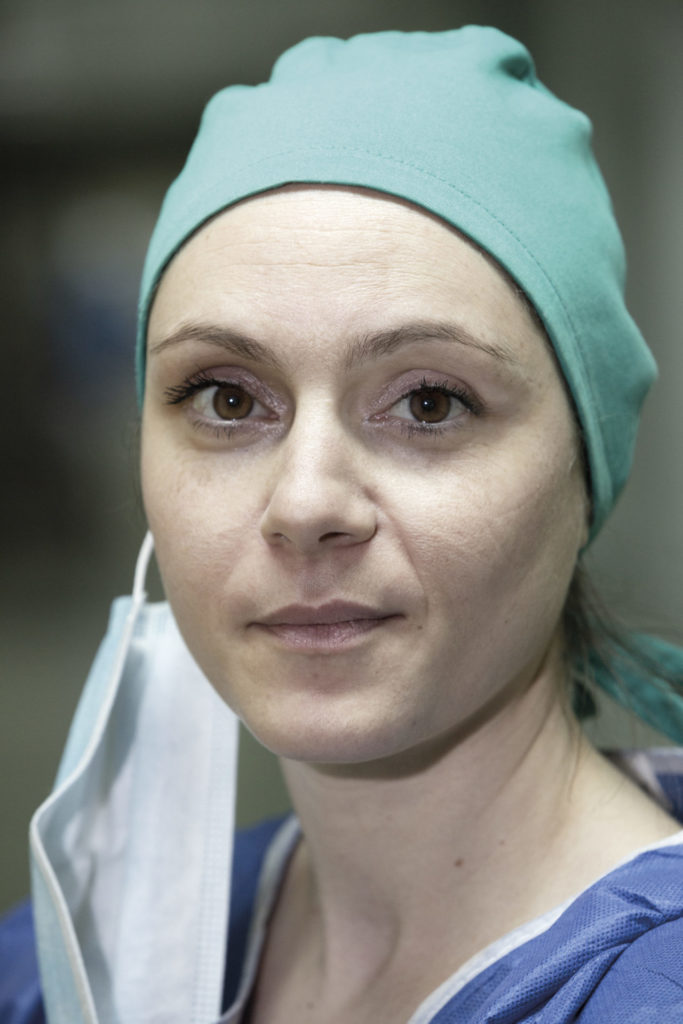
Nikoleta Ouzounidou, Covid ICU nurse – Evangelismos hospital
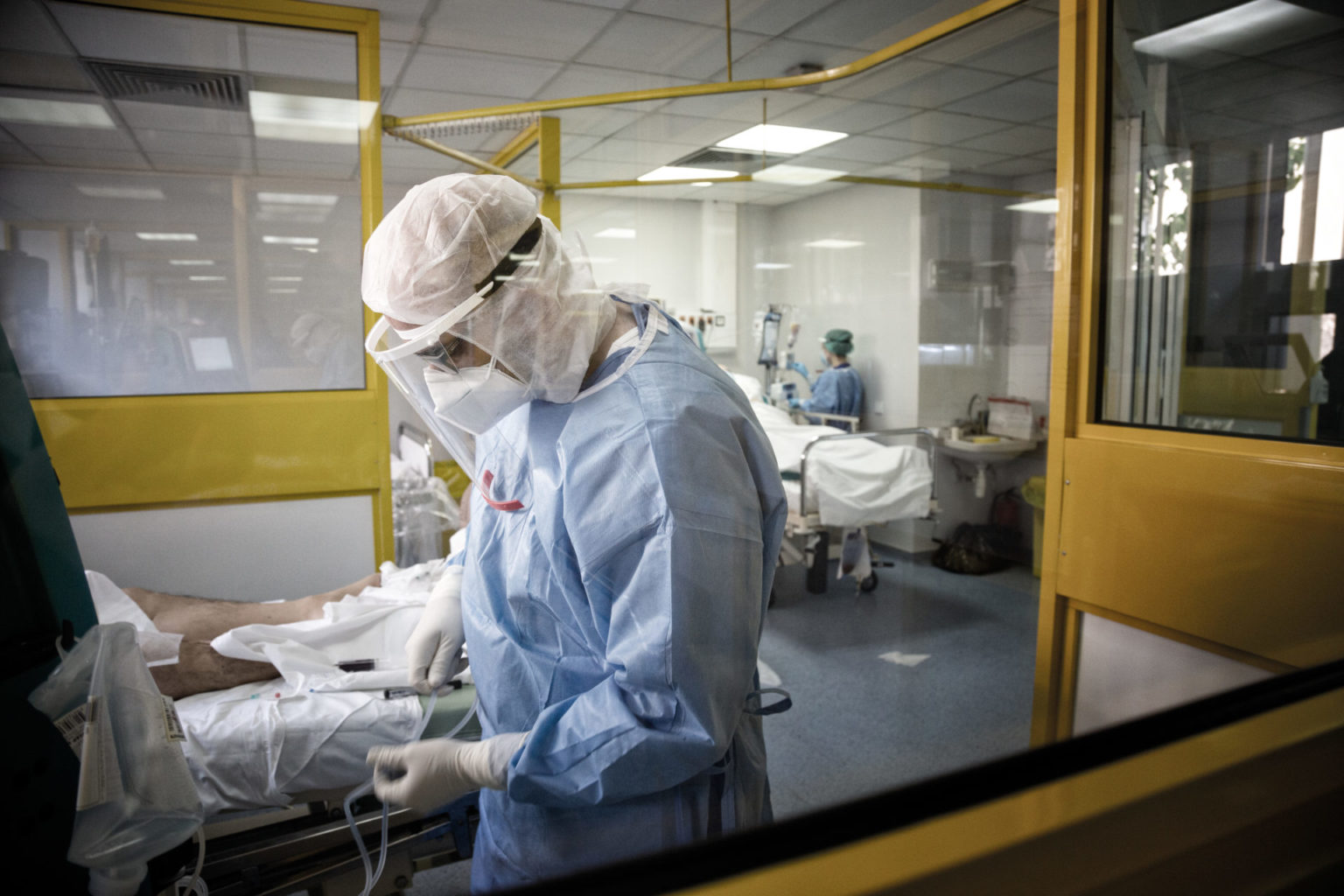
Covid-19 ICU – Evangelismos Hospital
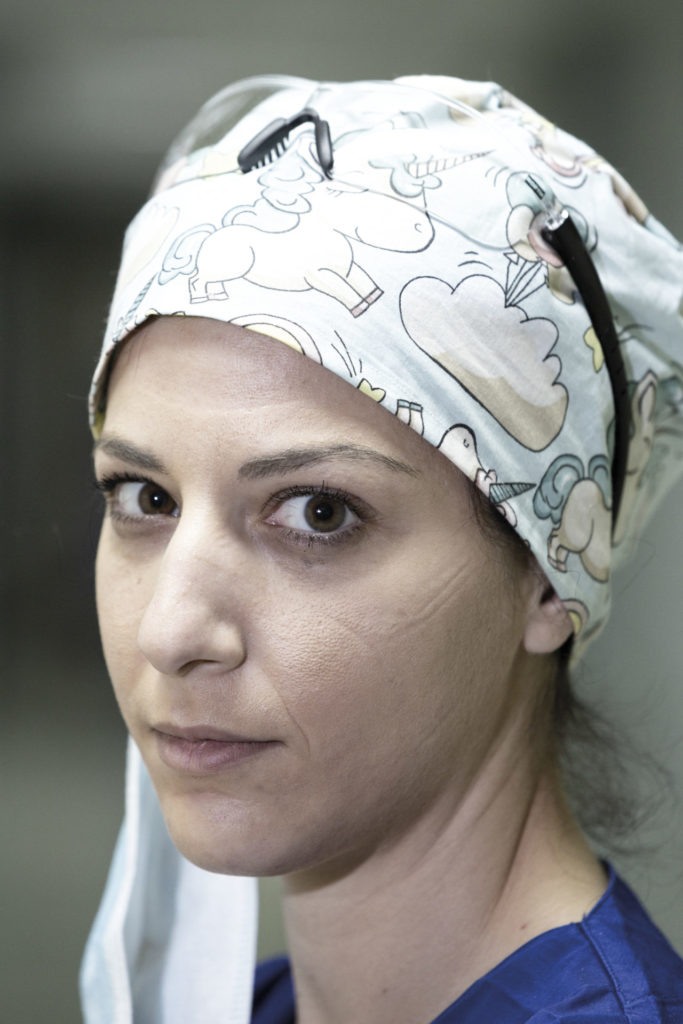
Georgia Chantzopoulou, Covid ICU Nurse – Evangelismos Hospital
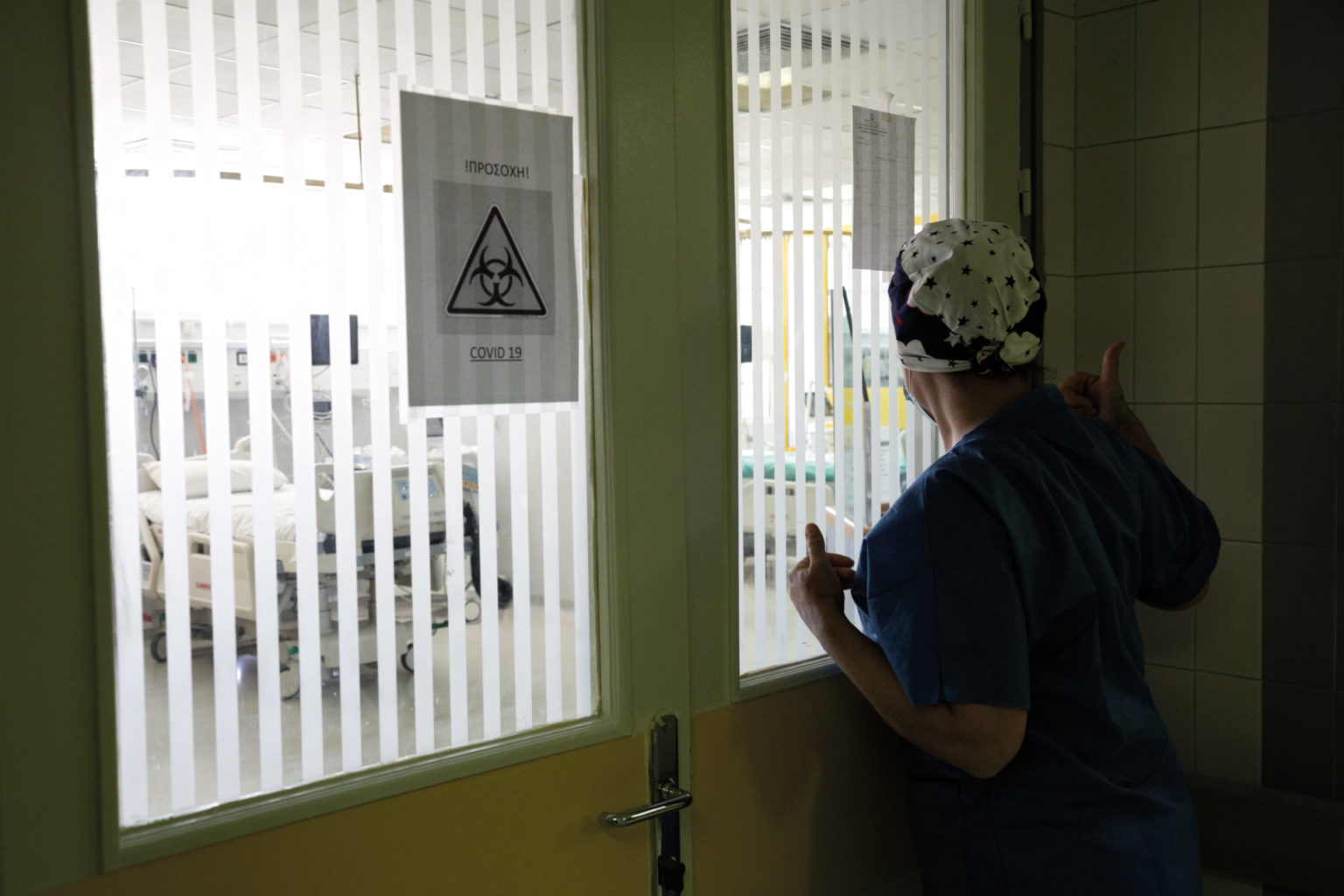
Covid ICU – Evangelismos Hospital
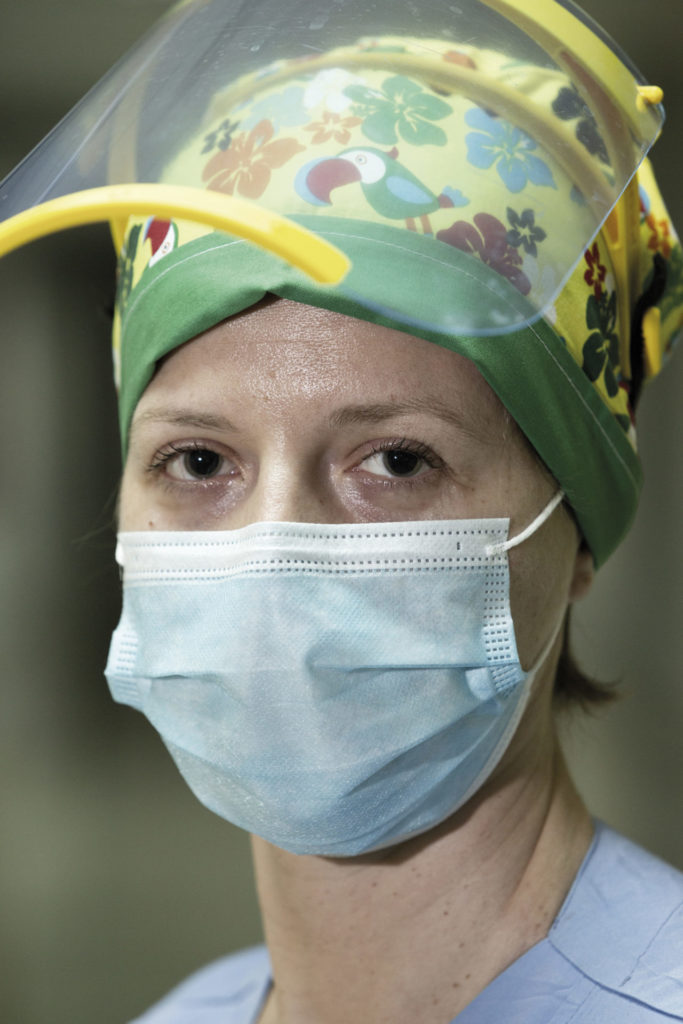
Chrysa Vasilaki, Covid ICU Nurse – Evangelismos Hospital
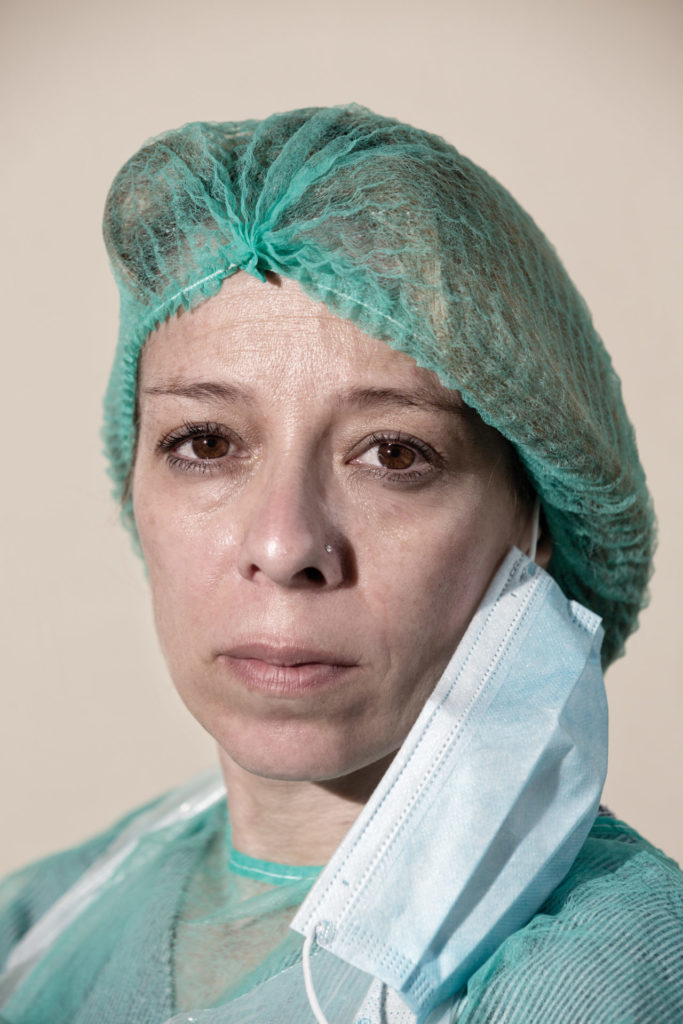
Niki Zamagia, food service worker, 49 y.o., 3rd Covid Clinic, Evangelismos Hospital
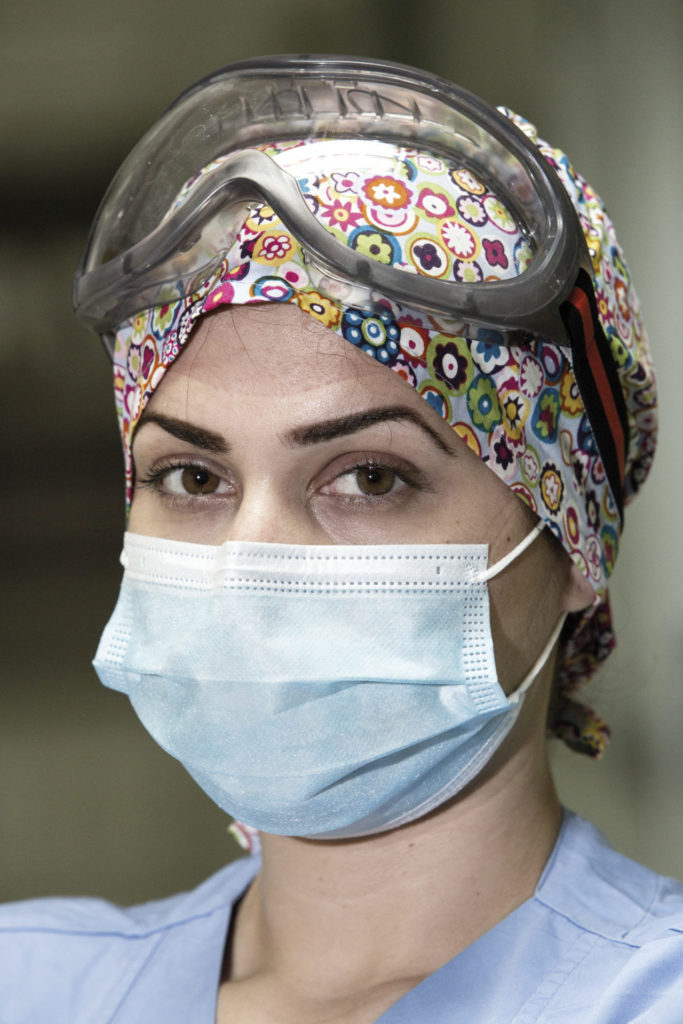
Konstantina Koufidi, Covid ICU – Evangelismos Hospital
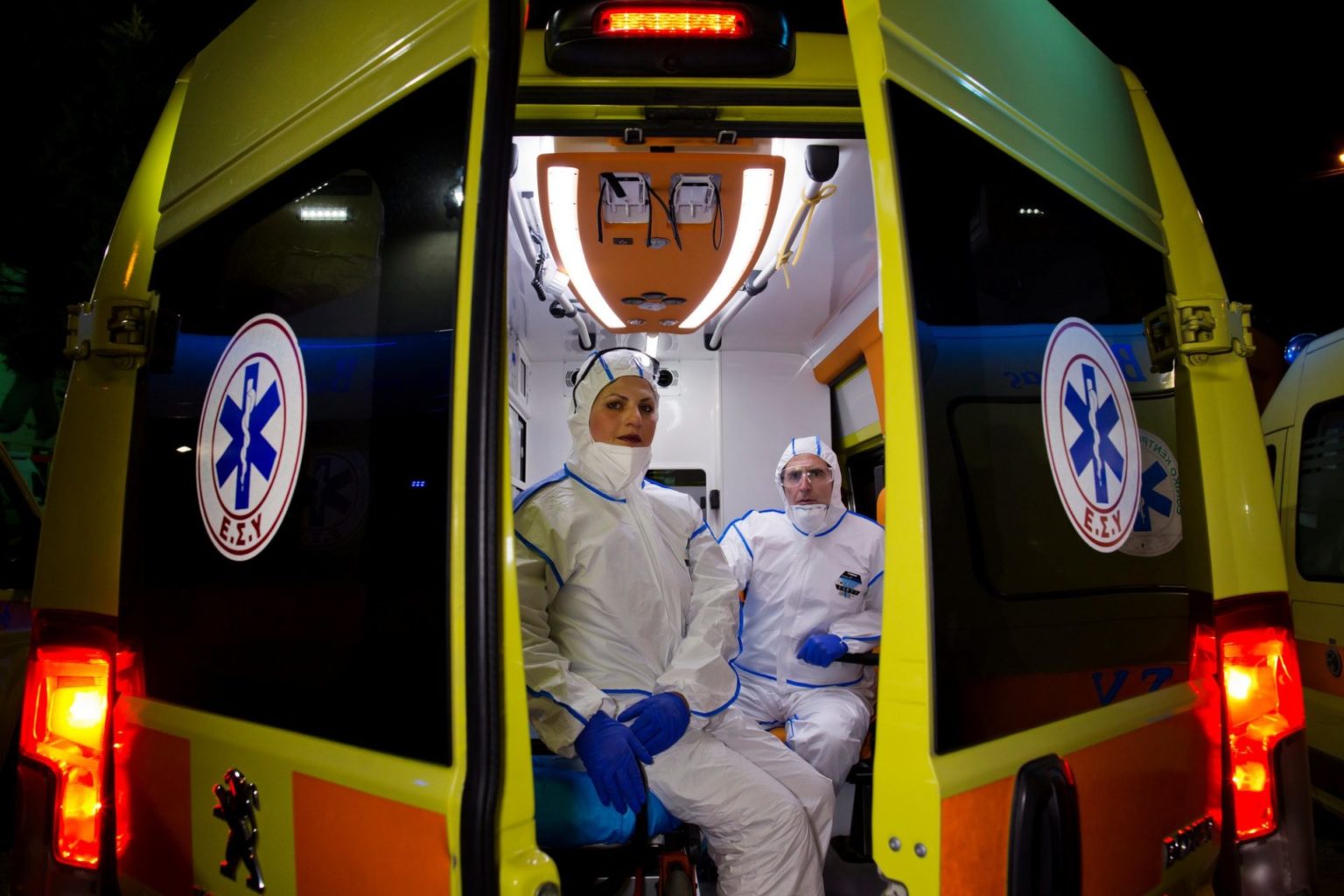
“When I submitted my application to work at the National Emergency Aid Centre (EKAB), following a call by the Minister of Health, I told my friends that “we are going to war”
National Emergency Aid Centre Rescuers Konstantina Papachristodoulou (L), 39 y.o. and Thomas Koulakiotis, 48 y.o., in an ambulance at the EKAB operation centre, 11 April 2020. Thomas Koulakiotis is married and has one child. He has been working as a rescuer in the private sector for the past seven years. When the Minister of Health called for doctors and nursing staff to be hired to deal with the pandemic, he applied and belongs to the first lot of those thrown into the battle against the coronavirus. He started working at EKAB on 1 April 2020.
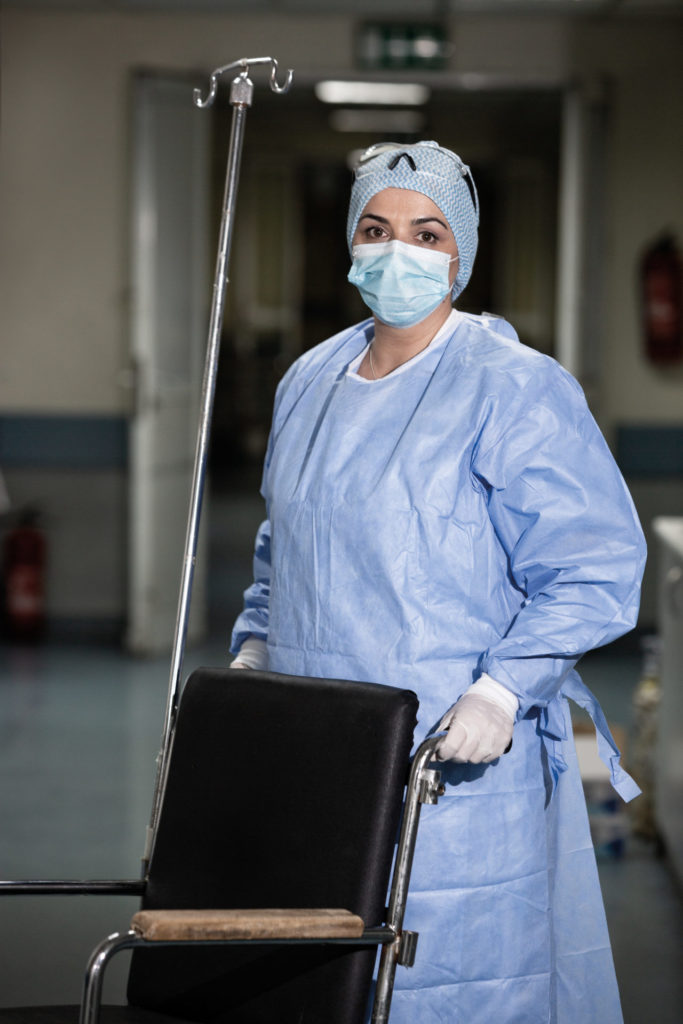
Ioanna Zachopoulou, Paramedic, Evangelismos Hospital
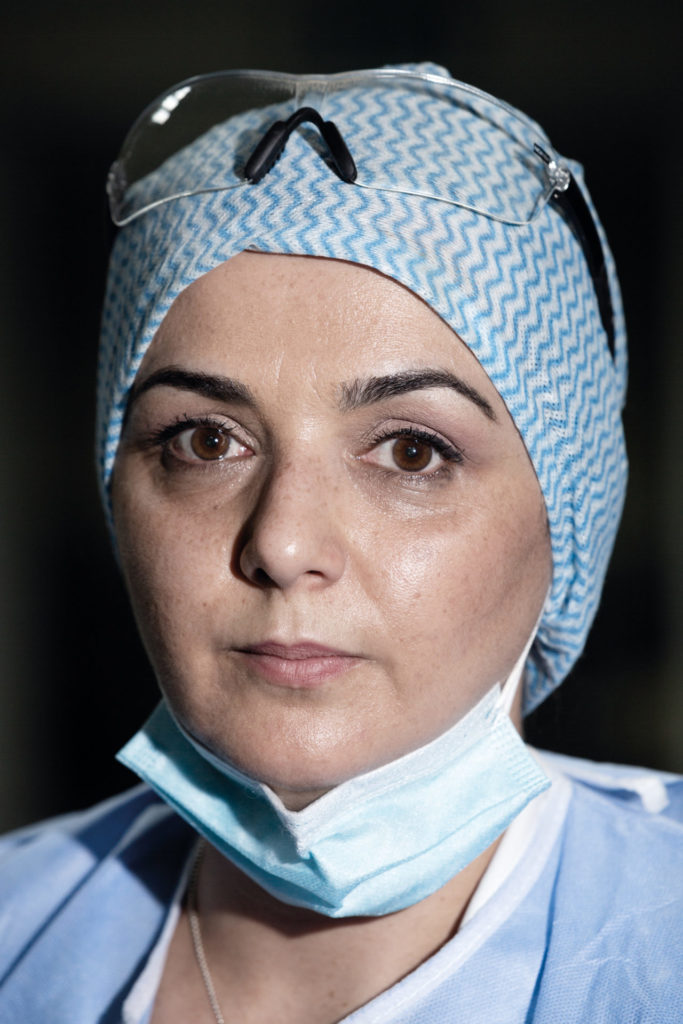
Ioanna Zachopoulou, Paramedic, Evangelismos Hospital
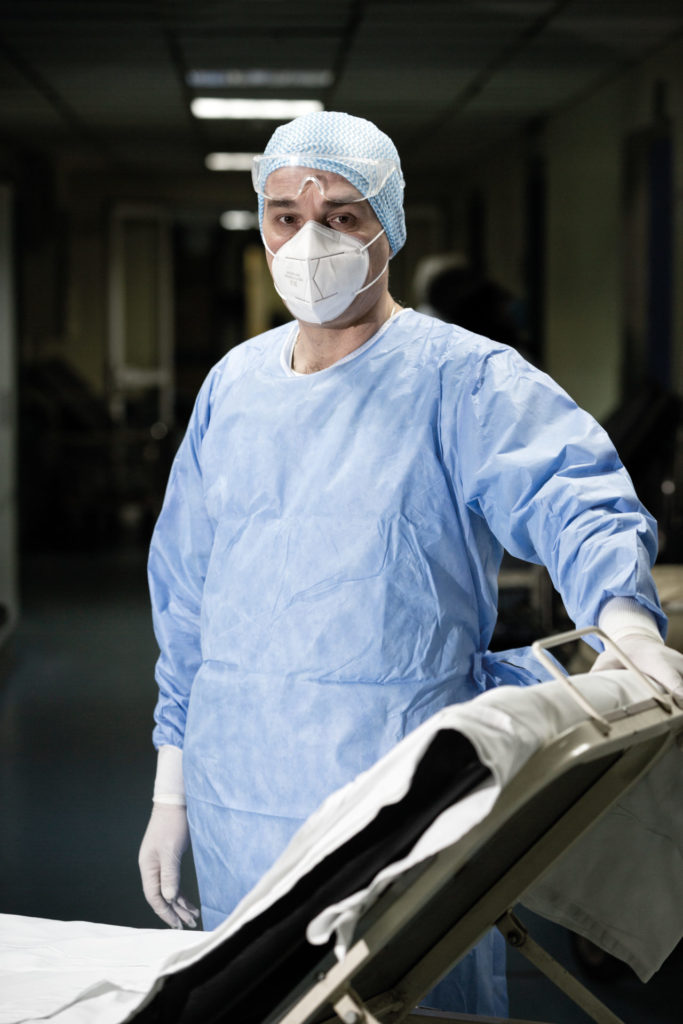
Lambros Kotsiras, Paramedic, Evangelismos Hospital
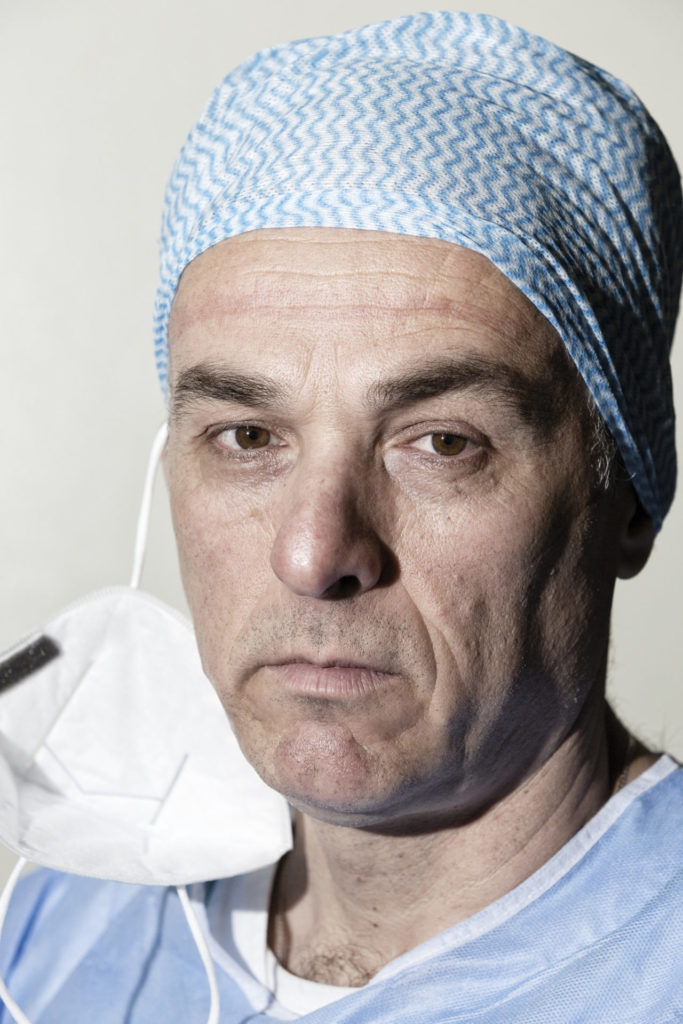
Lambros Kotsiras, Paramedic, Evangelismos Hospital
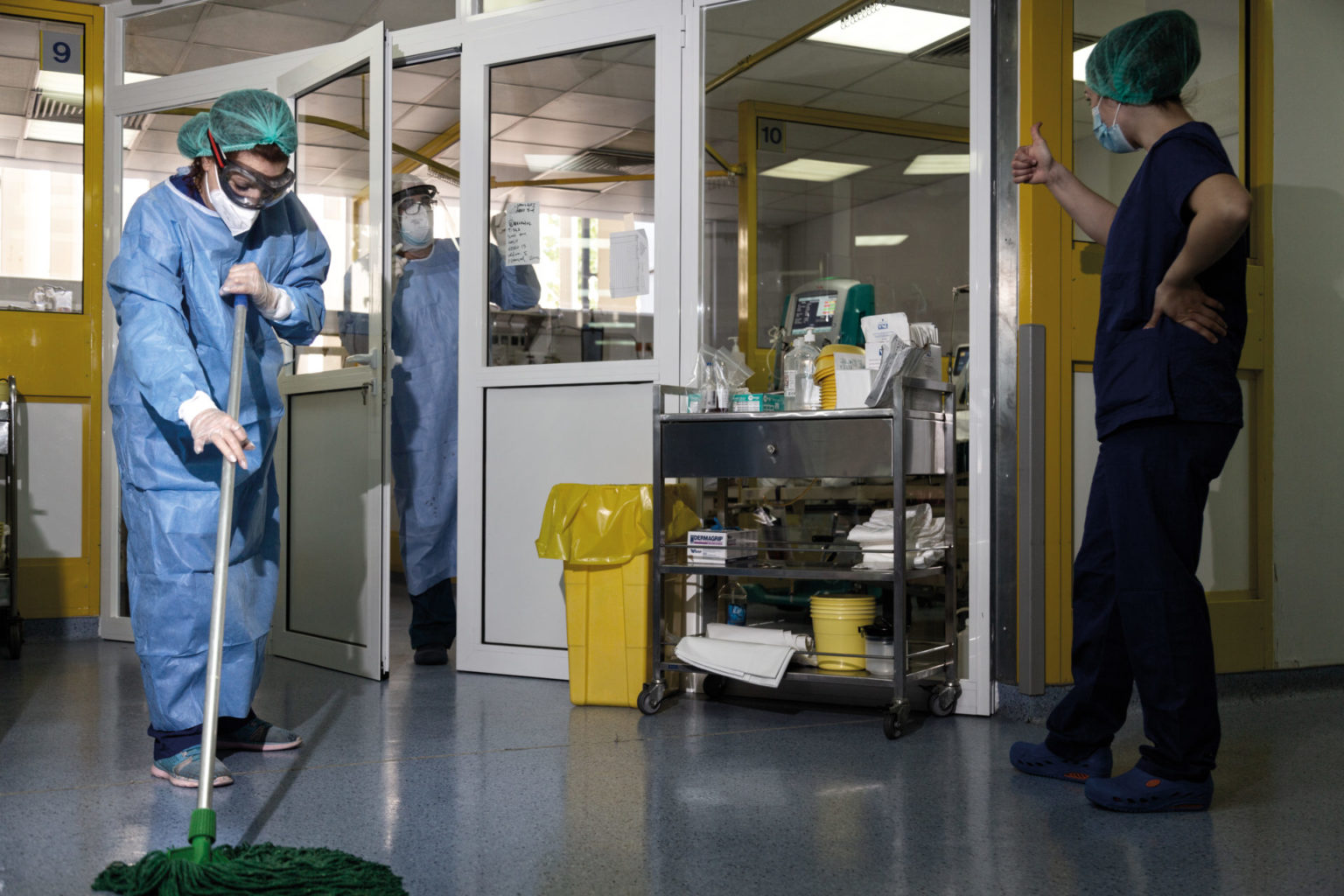
Maria Kyriakouli, Covid clinic cleaner – Evangelismos Hospital
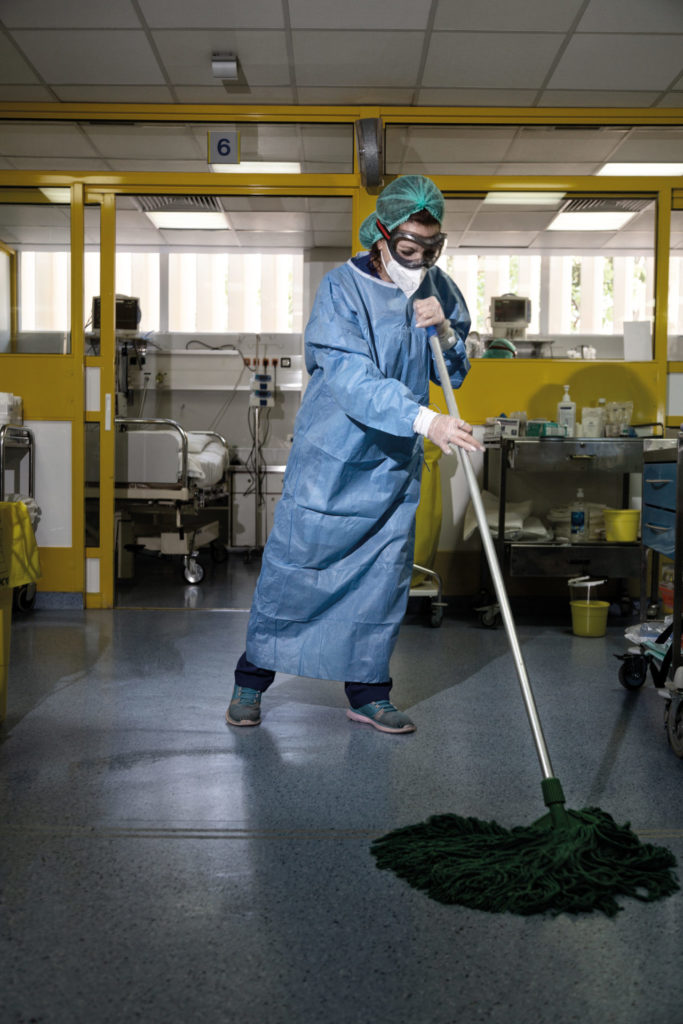
Maria Kyriakouli, Covid clinic cleaner – Evangelismos Hospital
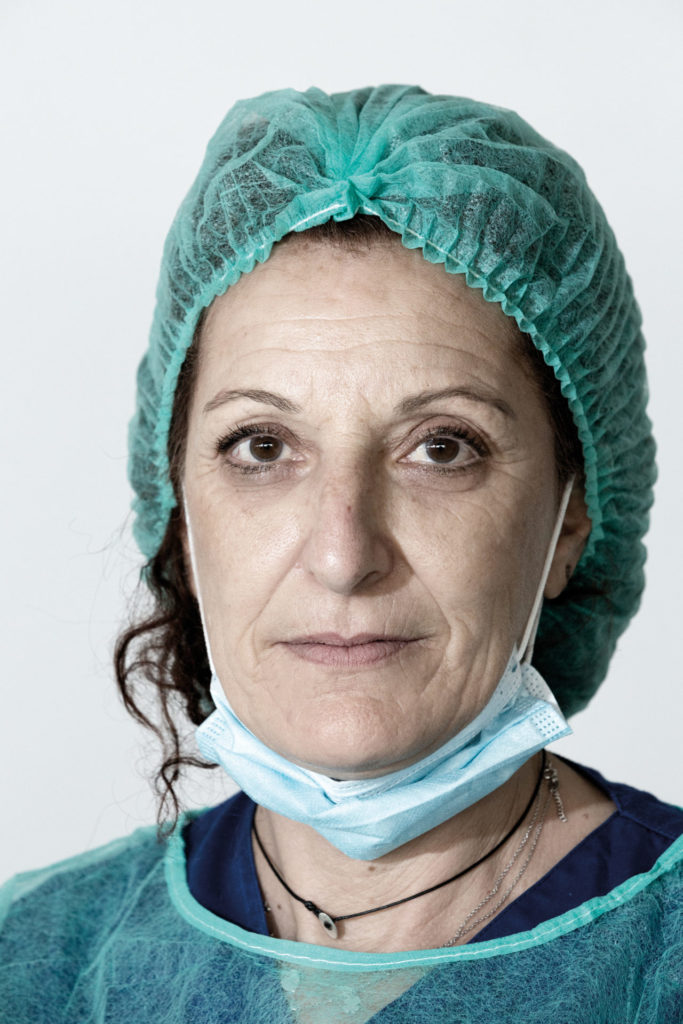
Maria Kyriakouli, Covid clinic cleaner – Evangelismos Hospital
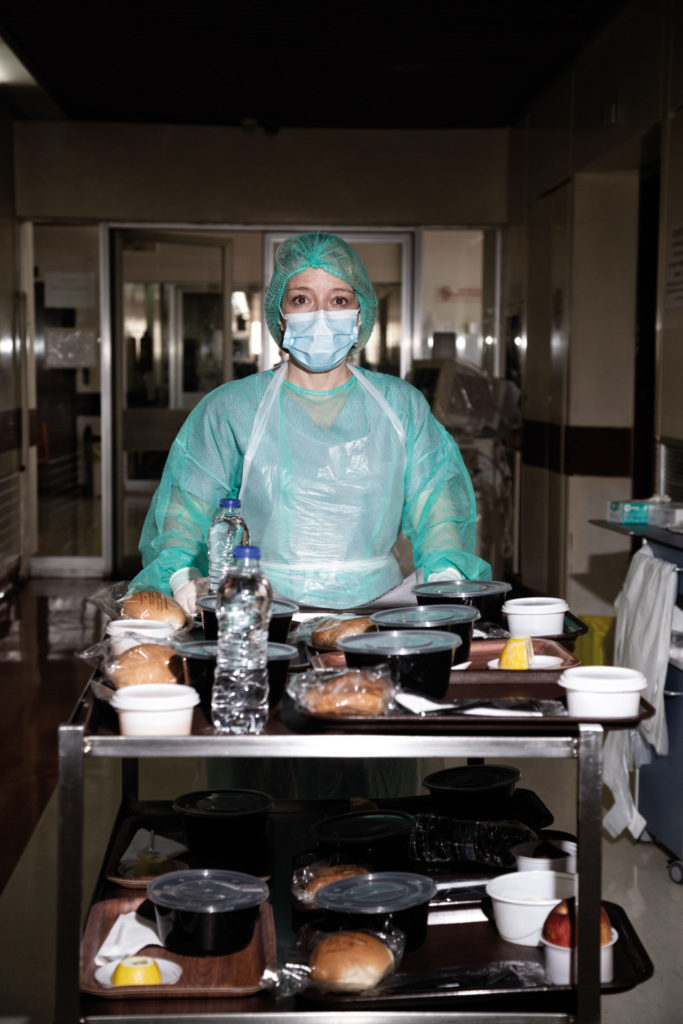
Niki Zamagia, food service worker, 49 y.o., 3rd Covid Clinic, Evangelismos Hospital
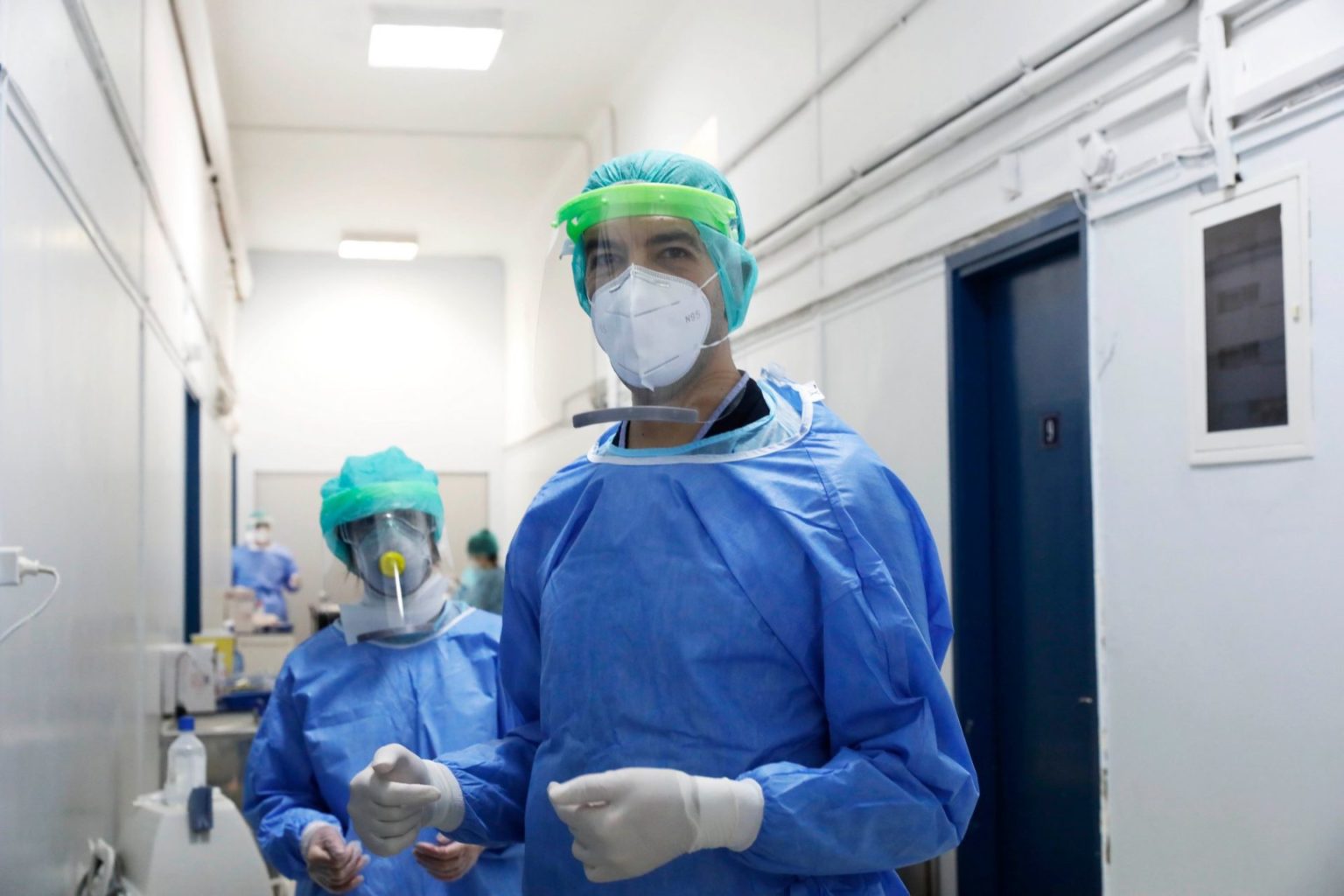
“As I leave the ward, there is no fear and there is no agony; just the feeling that you have done your duty”
Michalis Moutsos, Internist
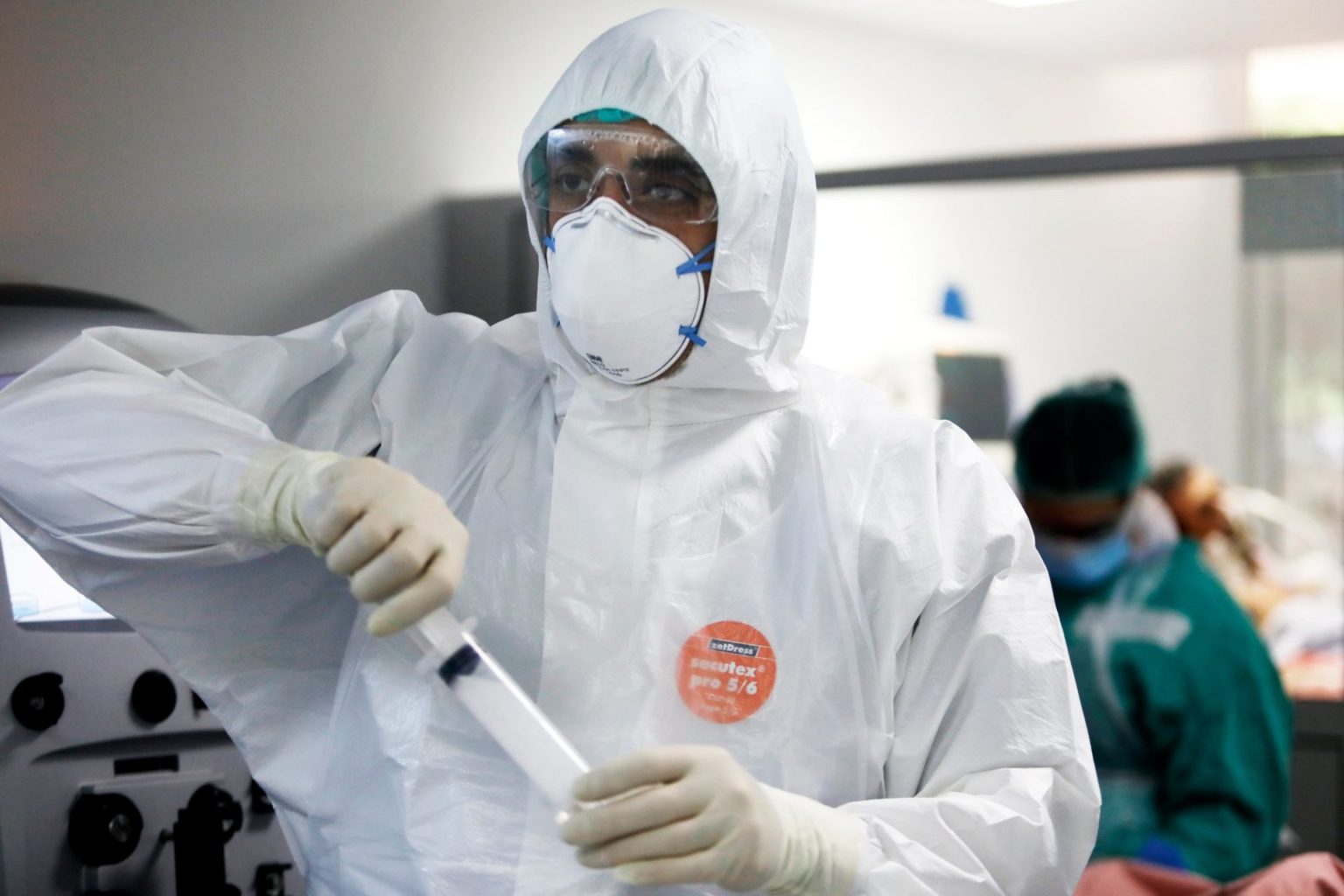
“I am neither a hero, nor do anything special; I’m simply doing my job under slightly harder conditions. That’s all”
Nikos Kakaras – Nurse
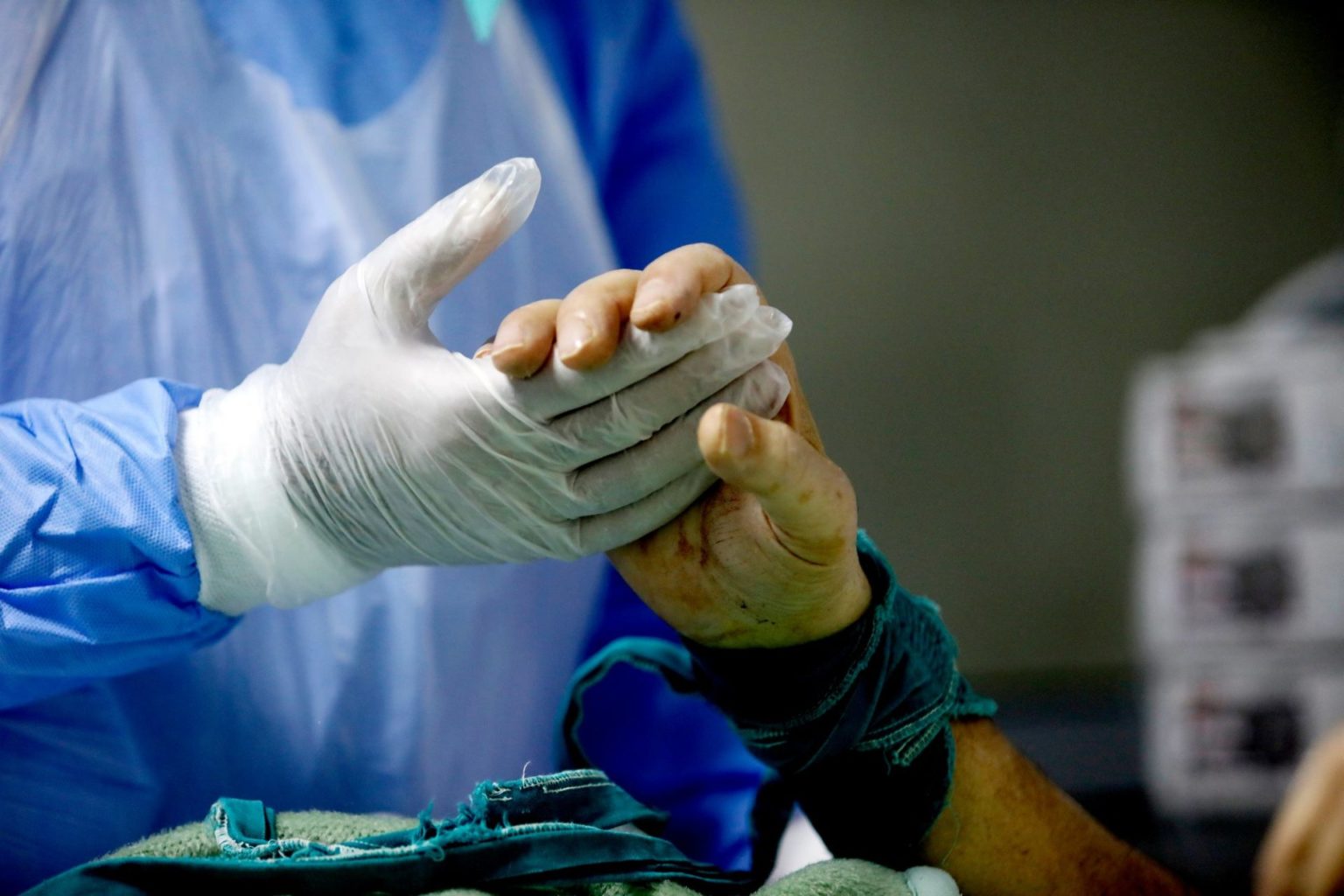
“It looks like a simple clasping of the hand, but it’s so much more. It is the moment that a COVID-19 patient is awakened from sedation. It is the moment when you know that you and your team with stand proudly before the patient and their loved ones. It is the moment that gives meaning to everything you fought for.
A COVID-19 patient is awakened from sedation (people call it “induced coma”) and holds the doctor’s hand tightly.
Kostas Pontikis, Intensive Care Specialist
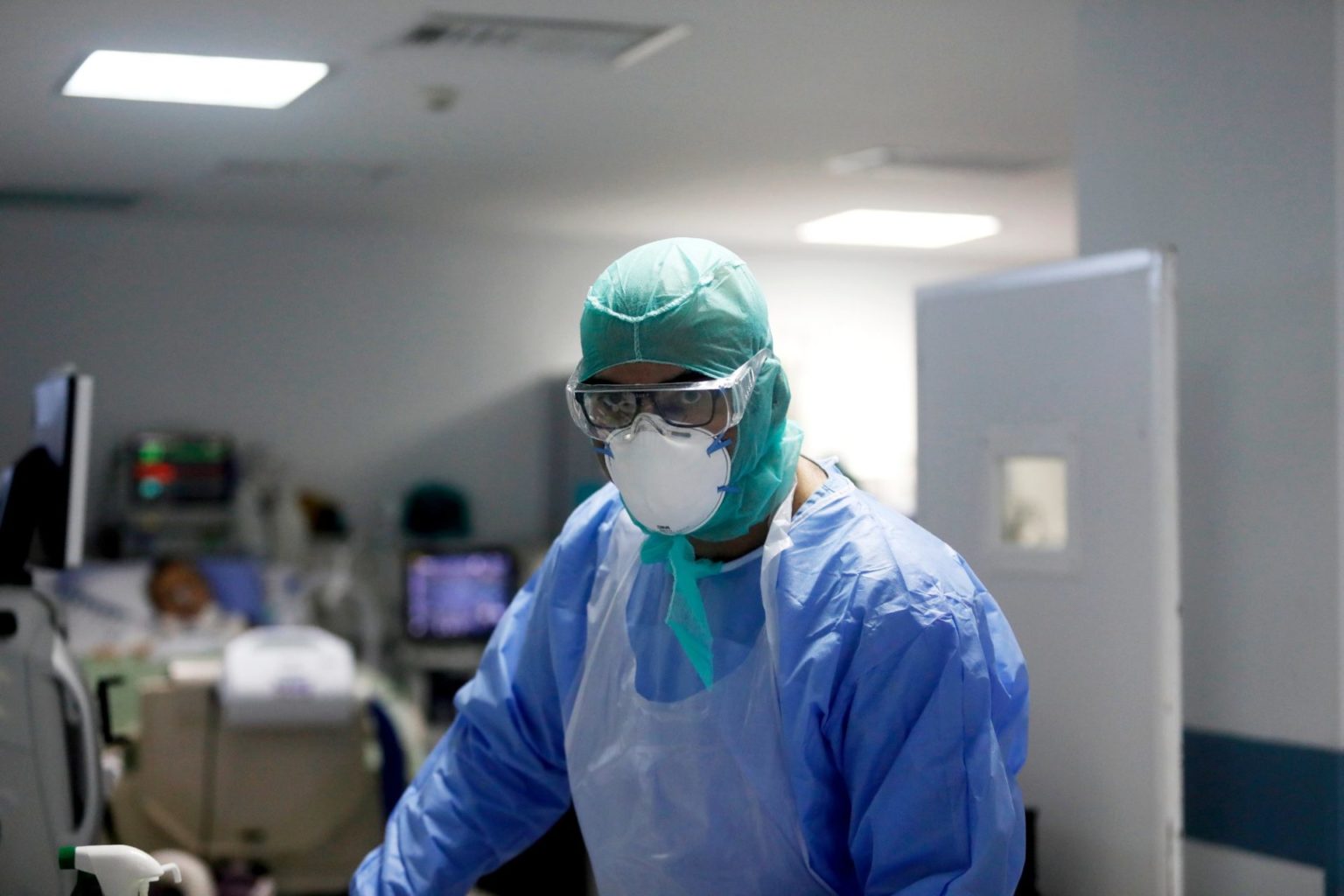
“Sometimes, you know that a patient’s condition is beyond your skills to reverse it. Realistically, this means that may be you should have let go. Yet, you’re still there, fighting. Even you get no direct results, you know that the knowledge gained will be life-saving for others”
An intensive care specialist makes a last attempt to resuscitate a COVID-19 patient, who died a few hours later. He knows that this attempt has negligible chances for success, but feels that this is the least he can do for someone dying – and for himself.
Kostas Pontikis, Intensive Care Specialist
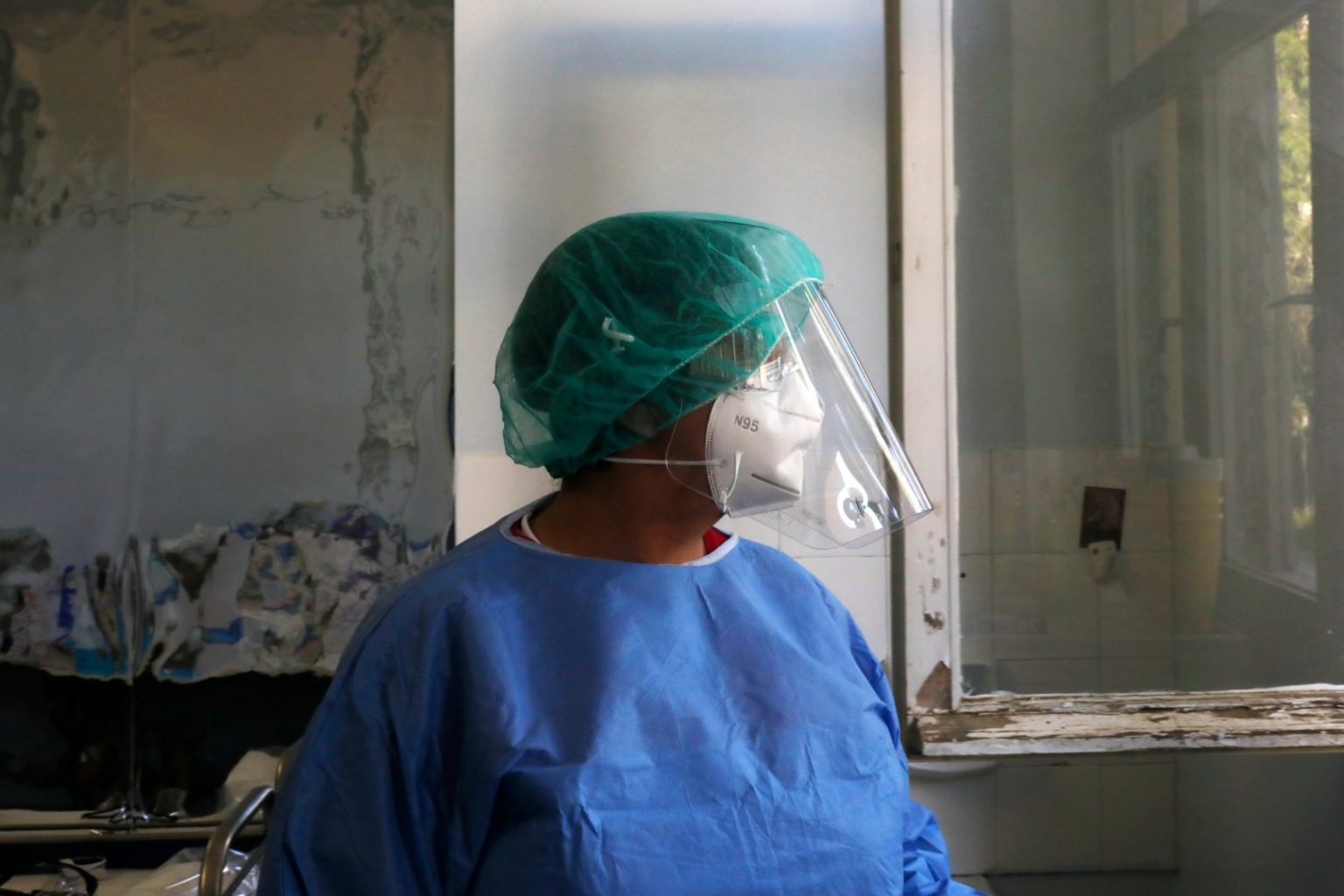
“I’m scared. Yet, you overcome fear when you stand in front of someone who needs your help”
Eleni Kakalou
NHS Doctor
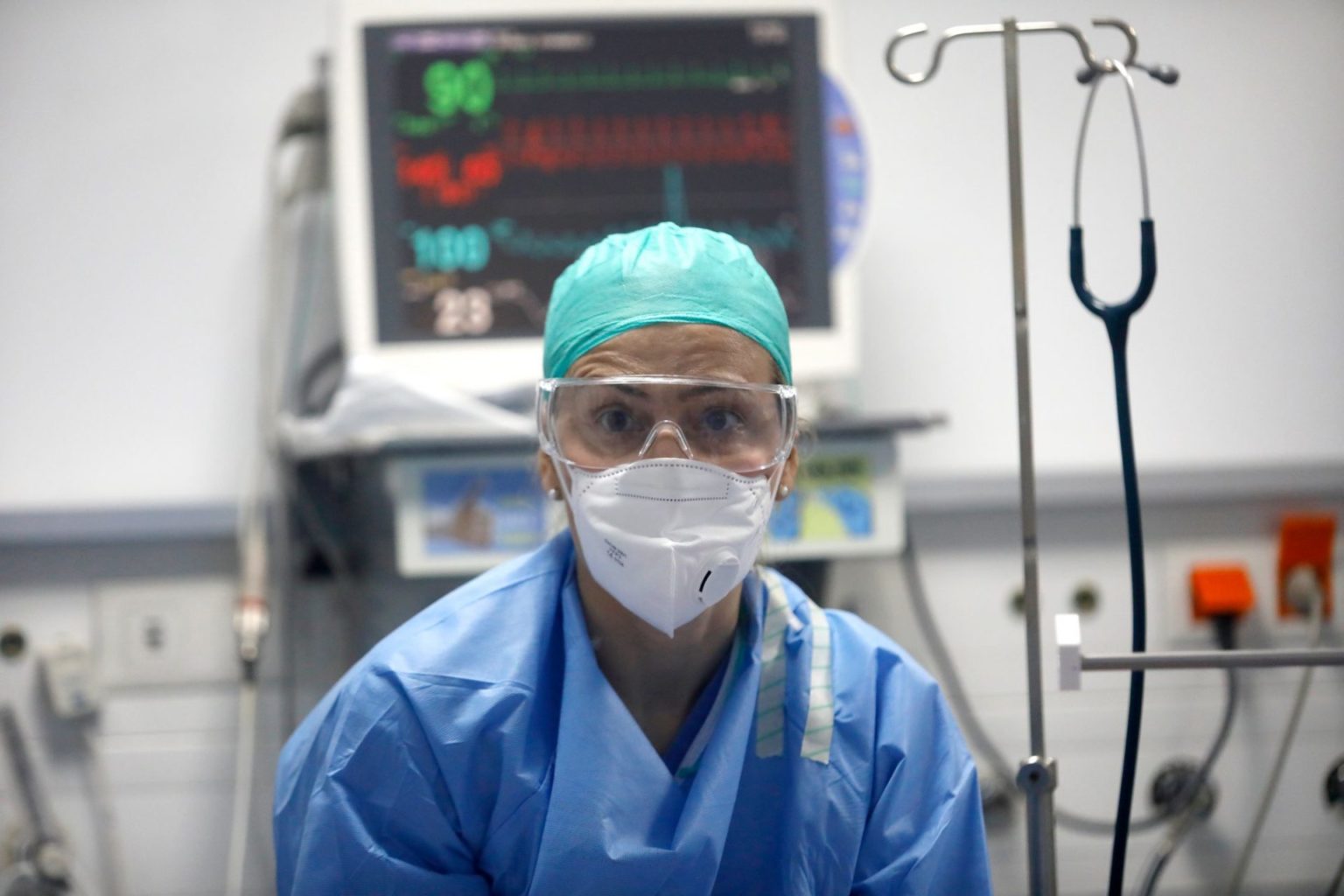
“It’s another day on the front-line for me. It is a battle I have to win for you”
Vaso Chatziara
Anaesthesiologist – Intensive Care Specialist
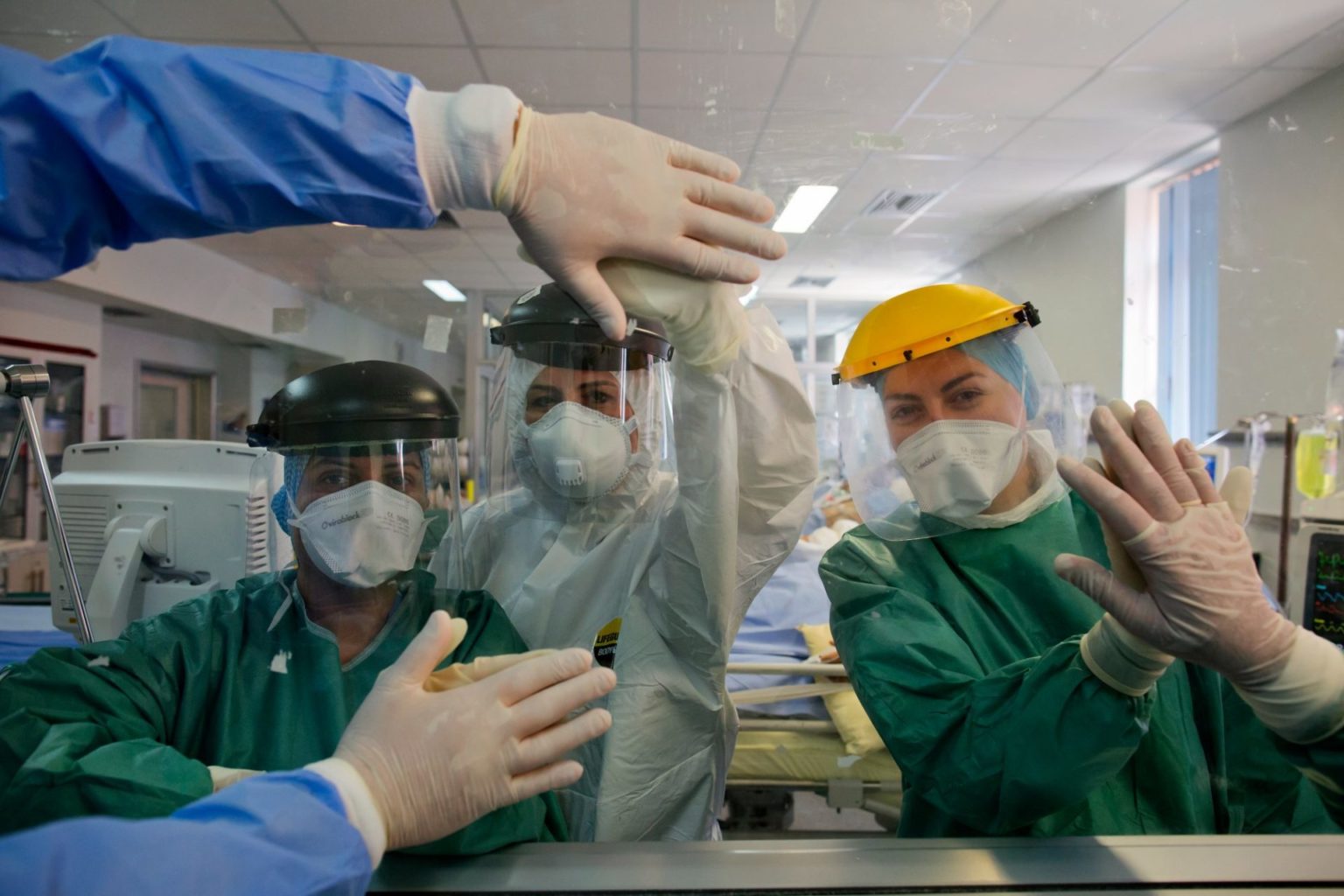
“I will not have a unicellular organism beat me”
Nurses Maria Tsamouri (M), Taimpa-Naz Riaz (L) and Iordana Moskofi (R), pose behind the glass separating the Intensive Care Unit (ICU), touching the hand reflections of doctors Giorgos Dimopoulos (R) and Dimitris Konstantonis (R), at the hospital “Attico” in Haidari, on 15 April 2020. Giorgos Dimopoulos is an intensive care medicine professor at the University of Athens, head of the coronavirus unit at “Attico” Hospital. He is married, with children.
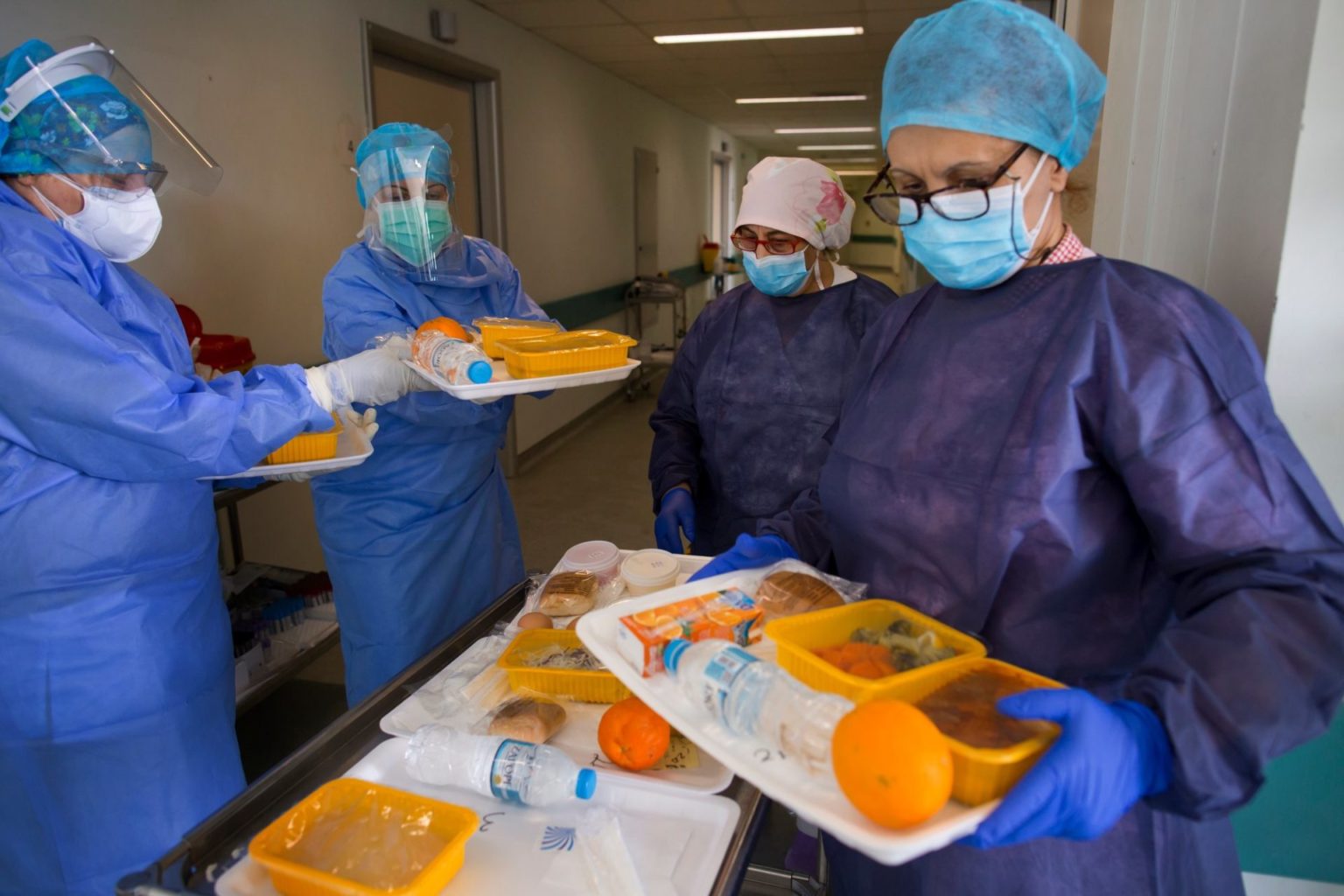
Food service worker Eleni Griva (R), 51 y.o., and nurses serve meals to patients hospitalised for COVID-19 at “Attico” Hospital in Haidari, 15 April 2020. Eleni Griva is married with two children.
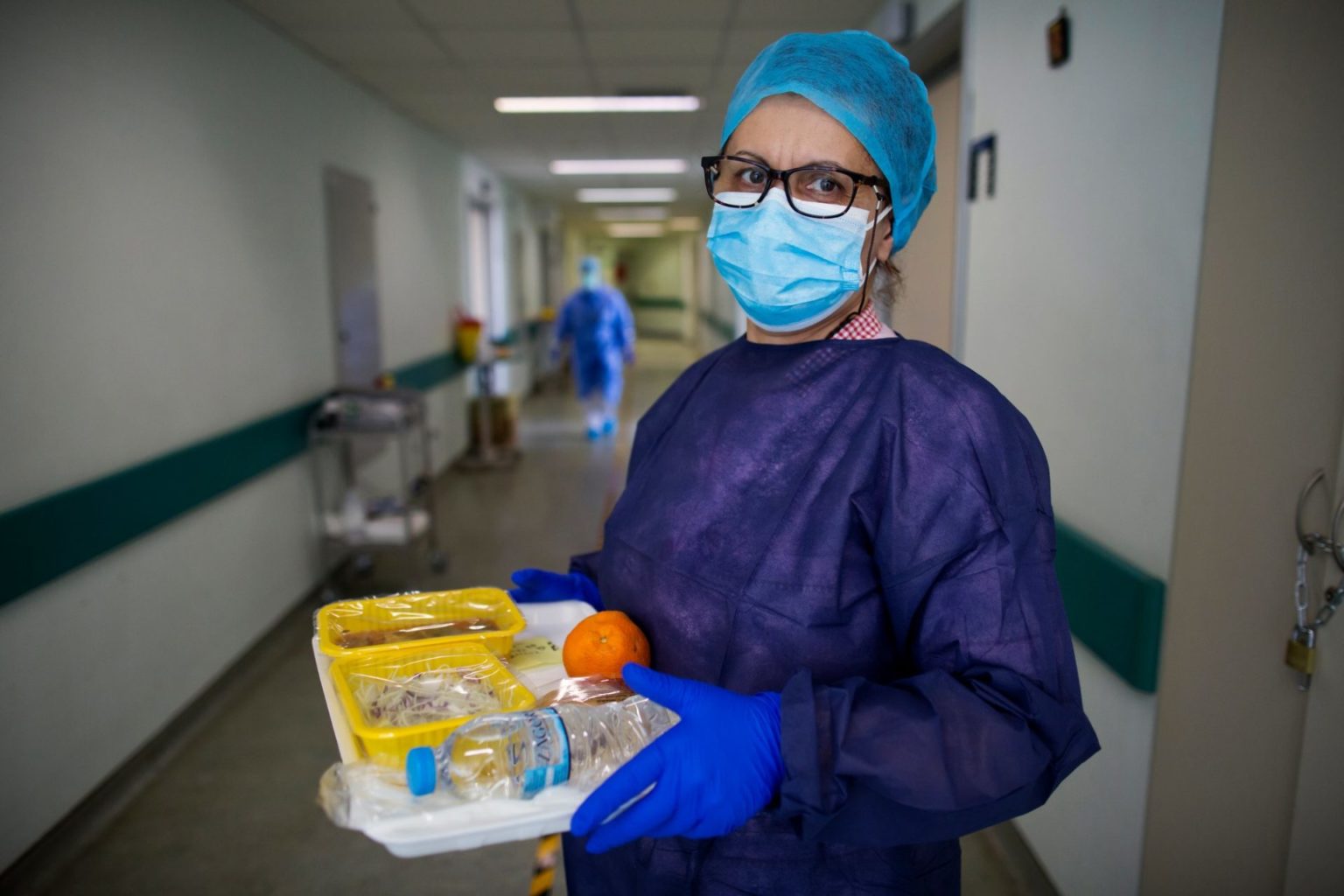
“At first it was uncomfortable, but then we felt really nice as we provide for patients, who have none of their own here; they are completely on their own.”
Food service worker Eleni Griva, 51 y.o., poses in the COVID-19 patient ward, at “Attico” Hospital in Haidari, 15 April 2020. She is married with two children.
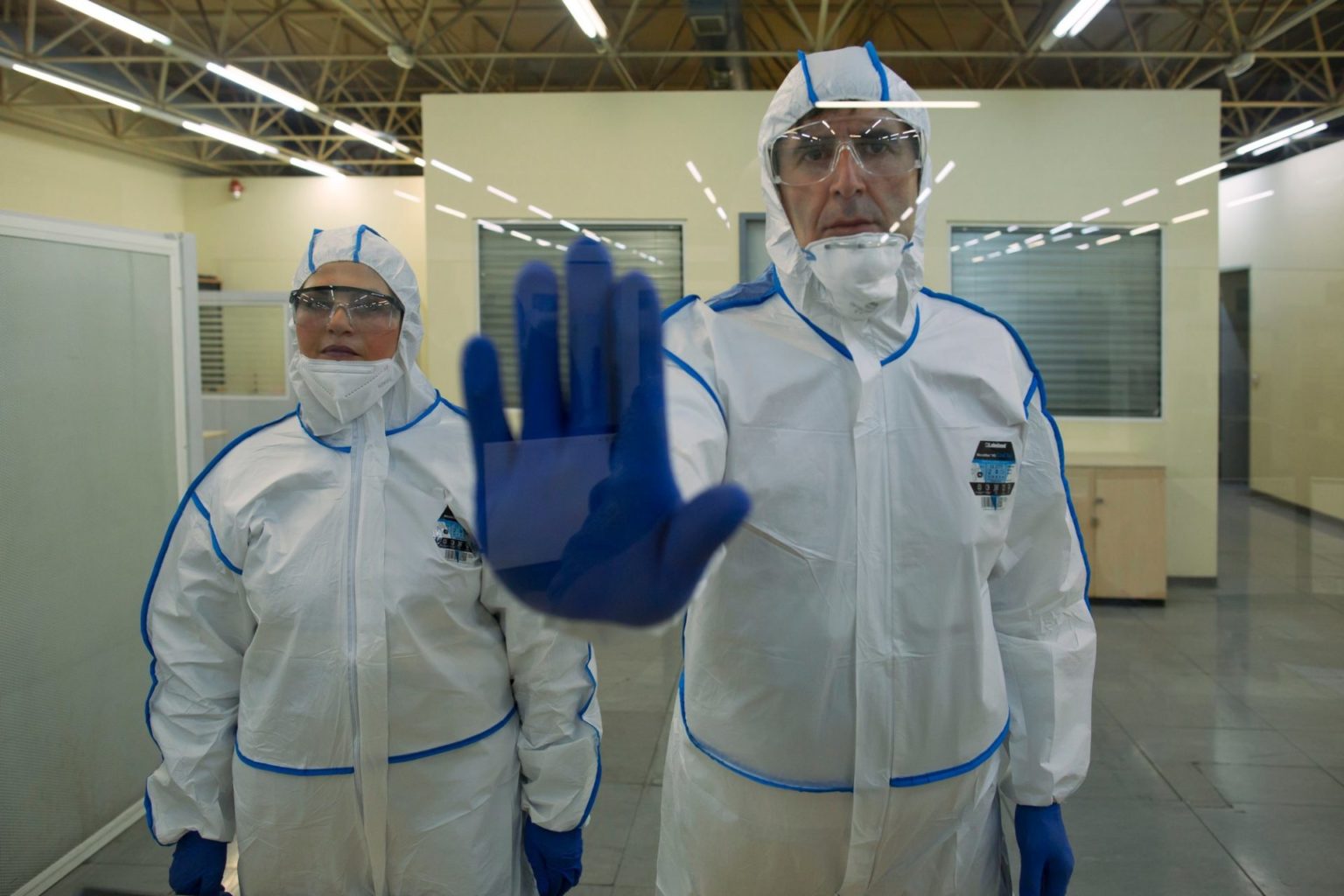
National Emergency Aid Centre (EKAB) Rescuers, Konstantina Papachristodoulou (L), 39 y.o. and Thomas Koulakiotis, 48 y.o., in the operation centre of EKAB, 11 April 2020.
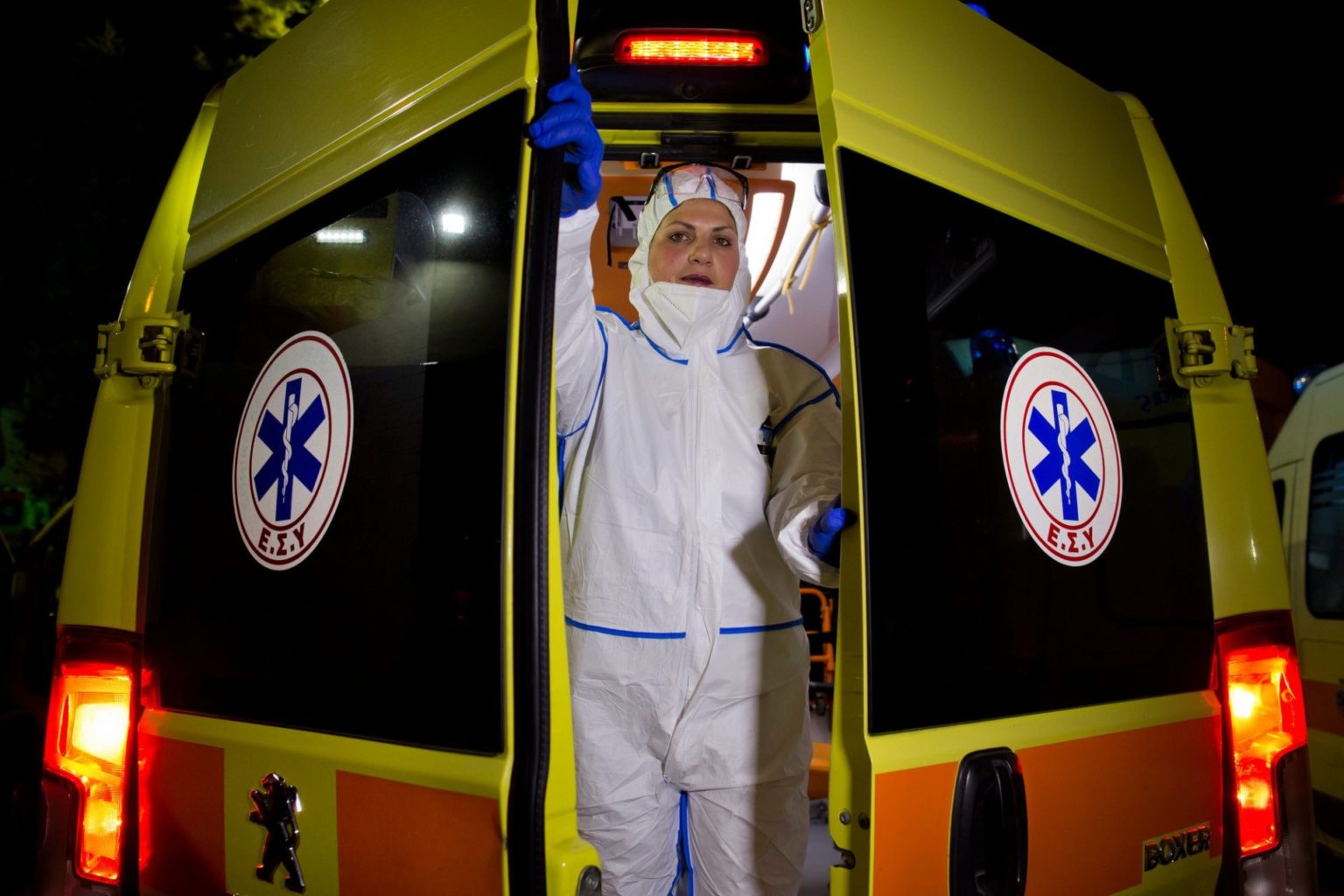
“My friends say I’m a hero, but I don’t feel like a hero; I’m just doing my job and what I really love”
National Emergency Aid Centre (EKAB) Rescuer, Konstantina Papachristodoulou (L), 39 y.o., poses in an ambulance at the operation centre of EKAB, 11 April 2020. Katerina Papachristodoulou is married to a National Emergency Aid Centre (EKAB) rescuer and has one child.
